Celebrating Israel’s 75th Yom Haatzmaut with Values
Yom Haatzmaut 2023
Let's celebrate with values – our guiding principles.
Israel. This land of paradoxes is celebrating 75 years.
We live in a country where the same person who will push you on the bus, will also walk three blocks out of their way to show you where you have to go; where should you trip and fall, ten people will show up out of nowhere to make sure you’re ok; where if you’re the last person on the bus, and it’s late at night, the bus driver will drive you home – or at least close by.
We live in a country where anything is possible – anything.
And that’s why we have to make sure that the worst doesn’t happen.
That instead, we dig deep into ourselves and reconnect with positive values that define who we are. We are but a collection of habits. Our values should be the habits we live by each and every day.
Values are maps of meaning. And they can help guide us and shape the behaviors that define us as individuals and as a society. And we must let them.
Let’s take inspiration from 75 incredible women who are leading the way. In this celebratory Yom Haatzmaut post, these women share their understanding of what matters most and how we can make Israel a better place.
That’s where we want to go.
To a better Israel. Not just for us. But for our children.
Because 75 years ago we were entrusted with this country. And it’s our job to hand it over, in better condition than we received it.
That’s what this Yom Haatzmaut has to be about.
We can’t let strife steal celebration. Instead, we must choose to listen to these inspiring insights that help us reflect on our own values. Because we know that Israel can be better, and that it’s up to us to make it so.
Happy Yom Haatzmaut!
1. Abbi Adest
Director, Matar Fund
Community Building

Community building means supporting the foundational bonds that bring people together – in families, schools, neighborhoods, towns and cities and the nation as a whole. This includes establishing a shared agreement that in a given community, all members have the right to express themselves and their needs and the responsibility to protect this right among all members.
Community is the core of social change. Relating to each other as individuals within the shared framework of community provides the opportunity for daily practice of the higher values we want to achieve in this world for ourselves and our children.
Our fund has been actively involved in building intentional communities (קהילות משימתיות) for the past five years in partnership with the Shachaf Fund. There are 230 of these communities across Israel. They range from an Ethiopian community in Gedera the supports social businesses for older immigrant women to a joint religious/secular community in Gilo adjacent to Mechinat Beit Yisrael. The communities aim to support their members and also the residents in the local neighborhoods and cities where they are located.
Anyone in Israel can become a change agent by finding out how they can serve their own local community better.
2. Martine Alperstein
Digital Marketing, ittakesateam
Generosity

A willingness to give help or support, esp. more than is usual or expected
Generosity is a critical value in the world of business, and in the world as a whole. It has the power to build strong relationships with customers, clients, and colleagues, who are more likely to trust and respect the person or business that acted with generosity towards them. Sure, this can lead to repeat business, and positive word-of-mouth marketing. But most importantly, it builds and breeds long-term relationships.
I occasionally get asked to present some thoughts on how to use digital marketing and social media to grow and build a business. And yes, I include the usual tactics, strategies and methods on how to do this successfully but I always end off with my signature ingredient….SHARE THE LOVE. Be generous. Be generous with your time. With your knowledge. With your expertise. Be generous with your output, your deliverables. Go the extra mile. And if you are already sitting at “the table”, shift up and invite someone to bring a chair and sit next to you at the table.
3. Tania Amar
Co-Founder & CEO, CXP Consulting
Trustworthiness

Trustworthiness refers to the fundamental attribute of being reliable and honest, which inspires confidence in people. Trustworthiness is tested daily in business leaders’ behavior, as it requires to consistently live up to committed promises and to deliver high-quality services.
I believe this is an essential quality of a successful business leader as it directly relates to reputation and credibility.
I believe this is one of the most demanding and high-standard values as this is not an attribute you can simply declare that you own. It is quality that you need to earn and deserve as a result of uncompromised work ethics, discipline, respect and transparency.
Promoting this central value starts at young age, where parents and teachers should demonstrate trustworthiness through their own behaviors and commitment to integrity, open communication, accountability and consistency. Leading by example, taking responsibility and integrity should be represented as top priorities in our societies whether you are a parent, a teacher, a manager or a political leader.
4. Yael Arad
Israel’s First Olympic Medalist and President of Israel’s Olympic Committee
Innovation

Innovation is achieved by examining and analyzing challenges – both personal and professional – in new and creative ways, without being limited by how things were done in the past.
As long as people approach challenges they face with the same methods and solutions they’ve used in the past, it will be very difficult for them to develop new processes or achieve breakthroughs. That’s why it’s important to create new pathways and methods, and this requires innovative thinking.
The first way is by being open-minded to unconventional thinking. It is a discipline to not be disciplined – it’s teaching yourself to resist the urge to return to the old and familiar.
The second way is through exposure and learning innovative tools that lead to innovative thinking. Innovation cannot be learned because innovation is something new every time. But you can be exposed to innovative thinking through case studies, ideation workshops, and meeting with innovative individuals.
5. Hila Bar
Owner and CEO of Bundu Communications
Authenticity

Authenticity. Such a strong, beautiful word. Because authenticity is YOU. It is who you are deep down inside, so deep that it doesn’t matter anymore what happens on the outside.
Authenticity is what happens when you are honest and true to your feelings, so that you can make the right choices, leading everything to naturally fall into place. When we live authentically, we give society our best, even if it’s just a priceless smile that can ripple into a person’s life and flood their whole household; brighten their classroom; inspire every person they encounter that day.
Actions based on a true, authentic foundation, creates magic: Our hearts open and we learn acceptance; our compassion blooms; we are happy without trying, and our healthy energy pervades everywhere. So be brave and be you. Encourage others to be true, and be a role model for a heathier, stronger, and happier society.
6. Marna Becker
SDR Manager at UserWay
Resourcefulness

Resourcefulness means knowing when and how to get help when we need it. Living in this complicated, yet beautiful place has made us an example to the world since we help each other when we can. Despite our differences, we are always helping.
We may not be able to change the world overnight, but being resourceful means making use the tools that we have and utilizing them in a meaningful way.
We have many differences and challenges individually and as a society in Israel. But we can each make our mark to help others by using the tools we have around us and knowing what we bring to the table. This will hopefully bring the sense of unity that we all crave. It seems like a world away, but I believe it’s possible.
As a society, we need to be practical. Take five minutes each day to provide a resource to someone who may need it or may not know about it. Help a person who is in need of a job make a new connection or explore a new path. Listen to a friend in need and help direct them to an organization or person who may be able to provide them with a solution.
7. Susan Becker
VP of Marketing, Cervello
Honesty

Honesty is to be true to yourself, to choose a career path, a lifestyle, specific behaviors, and the people who surround you most of the time – that is in accordance with your basic principles to live an honest life.
It is critical for society to implement the value of staying honest, to remain true to what we consider important, to remain honest with ourselves, and not relegate our values to remain as slogans during elections.
In a strong democracy, our laws are intended to be the forum for promoting honesty. In Israel, there are many excellent non-governmental organizations that encourage dialogue among our various sectors: religious and secular, left and right, Jews and Arabs, etc. If these organizations could receive a larger platform in our society, we could rise to a greater level of honesty, at least among the common citizens.
8. Rachely Ben Amram
Writer, Pitching Expert and Lecturer for Non-Violent & Effective Communication, Public Speaker
Leading By Example

Leading by example is the ability to inspire others to align their actions and behavior with specific values, by being a role model and living in accordance with those values.
It begins with ourselves when we listen to our inner voice and explore the values we wish to pursue in our lives.
Mahatama Gandhi said “Be the change you wish to see in the world.”
Leading by example focuses on oneself, on our own behavior, and not on trying to change others.
Leadership is important for making our lives in society better.
Unfortunately, not all entrusted with leading positions know that true leadership begins with leading ourselves, with being a living example of the values we wish to promote.
As a woman, mother, wife, friend and business owner, I remind myself every day that making a good change is not about anyone else but me.
Being a living, breathing example of the values I wish to promote, enhances my ability to influence others and spread ripples of good in my life and the world around me.
Being a leader by example is not about telling others what you think is the right way, it’s about paving a path for them to follow if they wish.
9. Dr. Hadas Ben-Eli
Chair, Department of Optometry, Hadassah Academic College; Director, Optometry and Biometry Service, Hadassah Medical Center
Commitment

A commitment is an agreement to do something in the future. In most cases, a person commits to do something that they really care about.
As the chair of the Optometry department at Hadassah Academic college, I commit to creating an academic environment that is world-class, pleasant and family-like for both students and faculty. I also commit to educating the next generation of optometrists using the most innovative pedagogic strategies while taking care of the eye health of the patients who come to the department’s clinics. As the director of Optometry and Biometry Service at Hadassah Medical Center I commit to creating a paradigm for collaboration between various medical professions for the benefit of patients, and to incorporate graduates into the hospital workforce.
When a person commits to some mission, it will be done on the best way, no matter what efforts are needed to achieve this goal.
I think each person should write down 3-5 missions they commit to. Plan your time to ensure the achievement of the goals you have committed to – professionally and personally. This will help establish us as a successful society, and foster a sense of mutual goodwill and compassion among ourselves.
10. Cecile Blilious
Head of Impact & Sustainability, Pitango Venture Capital Co-founder & chairperson, GITA (Global Impact Tech Alliance)
Sense of purpose
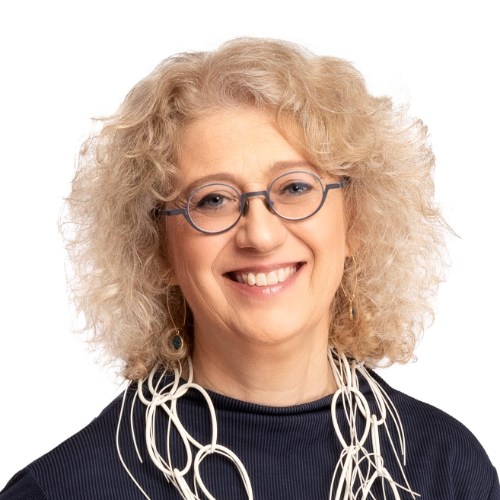
Having a sense of purpose drives people to be “all in” and raises engagement and success.
People who feel a sense of purpose will experience alignment in their work, their family life, and any activity they’re involved in.
As women, we are used to being responsible for handling a multitude of tasks. This is why we have to make sure we focus our time and attention on what really matters to us.
When women benefit – society benefits. A sense of purpose helps us do our best and improve continuously by learning from success and failure.
People with a strong sense of purpose are happier, more productive and creative, and they inspire others to follow them, multiplying their impact on others.
Especially in these difficult times, we all need to feel that we’re serving our purpose and draw others to focus on what matters.
Expose people to opportunities and inspire others to take action on what really matters to them. Find purpose in small and large things every day.
Identify and reduce anything that is an energy drainer. Focus on what makes you happy.
I recommend actively searching for alignment in whatever you do by asking yourself: Do I feel that this activity helps me serve my purpose?
11. Rebecca Brygel
CEO and Founder of Surgimate
Volunteering

Certainly not a value that requires an explanation in Israel. It feels as though it’s an activity that everyone takes part in; from youngsters to the elderly and is not limited to the able-bodied, the educated or those with means as it may be in other locales.
Volunteering is an act that brings us closer to one another and provides opportunity for both parties… who are simultaneously giving and receiving.
Whether it’s cooking on Fridays for those who cannot, assisting army graduates find a career, or spending quality time playing games with someone who is isolated, there is always something we can do to live better together.
I have personally been a grateful recipient and contributor of volunteer work and hope that this wonderful facet of our culture will continue strong into our 76th year and beyond.
12. Rotem Dar
Internal Communications and Employer Branding
Collaboration

Fostering connection, expanding our understanding from a range of perspectives, and learning from each other.
In my work, I get to see firsthand how collaborations and connections serve as the foundation for creating something significant together. By fostering connections, we can learn to appreciate different perspectives, connect with others who are different than us, and develop our ideas and abilities.
As we celebrate our independence and reflect on the current situation in our country, I strongly believe in the power of cooperation to help us communicate and connect with each other.
13. Vered Dassa Levy
Global VP Human Resources
Goal Setting

“Setting goals is the first step in turning the invisible into the visible.” – Tony Robbins
Goal setting can be a powerful tool for achieving personal and professional success.
Take time to identify your aspirations and set SMART goals to help you reach them. Break down larger goals into smaller, manageable tasks and create a timeline with specific deadlines to hold yourself accountable.
Over the years I understood that to achieve something, I must first define what this “something” is. So, for any dream I have, I imagine it first, say it loud, play with the idea in my mind, ask others what they think, and then set my goal. Normally I divide it into small steps.
That process creates clarity of my vision and the way to win it.
Remember to celebrate your successes and learn from any setbacks. By setting and working towards your goals, you can gain a sense of purpose, direction, and fulfillment in your life.
14. Lior Dery
Internal Communications and Employer Branding
Optimism
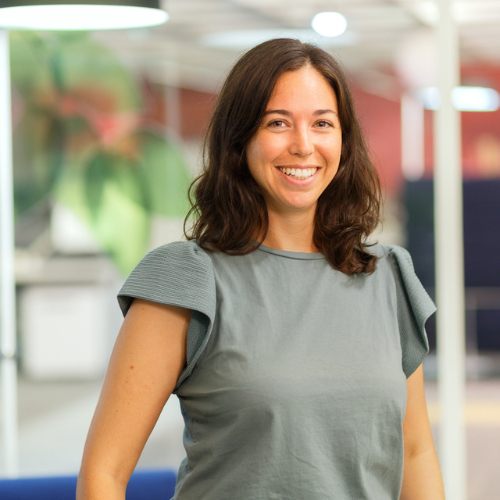
Optimism is the ability to see the positive in every situation, with the unwavering belief that everything will work out for the best.
Though I am not an optimist by nature, over the years I’ve learned how much power there is in being optimistic. In complex or difficult situations, being optimistic can be a person’s only source of hope that keeps them going.
I am privileged to be surrounded by people who see the world positively, and I was surprised to find how their optimism has had a positive effect on me.
In honor of Israel’s 75th Independence Day, I want to encourage us all to be more optimistic – to listen, to be open to different viewpoints, and to choose to see the silver lining even in tough times.
15. Melissa Despina Fragiadaki
Violence Prevention Educator | Empowerment Self-Defense Instructor
Safety

Valuing our safety means valuing our own mental, emotional, and physical well-being and the well-being of those around us.
We develop a sense of safety by learning about and enforcing our boundaries and respecting the boundaries of others.
Defending our safety can mean anything from setting a verbal boundary, to screaming “NO!” to a punch or kick.
We all deserve to live our lives with confidence, dignity, and a sense of security. When we feel safe, it’s much easier to respect and defend the safety of those around us.
The tools that keep us safe aren’t meant to keep us apart. They are meant to help us build healthy relationships and communities.
We’re born knowing how to make our needs and wants clear.
Sadly, somewhere along the way, thanks to the messages we receive from the world around us, many of us become less sure of our right to keep ourselves safe.
But the good news is that we never lose those innate abilities. All we need is an opportunity to reconnect with the tools we’ve had all along.
Empowerment self-defense classes provide an opportunity for everyone, regardless of age, gender, or physical ability, to do just that.
16. Shelly Douek
Intuitive Entrepreneur
Trusting Intuition

Because intuition operates beneath our conscious awareness, it can be challenging to trust or listen to. But intuition is real, and it’s the way our subconscious mind communicates with our conscious mind. Trusting our own intuition is key.
Listening to our intuition, no matter what others say, can provide valuable guidance, whether it’s a loud and clear message or a faint whisper. Intuition is not exclusively for spiritual people; it can be useful in the business world as well.
Our business world will increasingly rely on AI bots for managing processes. To excel, we need to stop suppressing our intentions and the guidance we receive from our subconscious.
You can harness the power of your intuition to become an intuitive entrepreneur. Believe in yourself, trust your intuition, and it will lead you to success.
17. Jenny Drezin
VP Communications, PR Advisor for Startups/Entrepreneurs
Transparency

We live in unstable and uncertain times. From political instability to economic downturn, the Covid pandemic to the AI revolution, the only thing certain these days is change. Human beings are creatures of habit, and rapid transformation makes us nervous.
Leading with transparency is the best way to address instability. I define it as being open and honest, communicating frequently, and encouraging people to express their thoughts and fears.
Transparency matters in a world where technology is rapidly replacing human work. Is that video authentic or was it manipulated using deepfake technology? Was this opinion piece written by me or Chat GPT? (Spoiler: I wrote it myself, with a little help.) As we move towards increased human and machine collaboration, transparency ensures accountability and responsible decision-making.
Transparency is key to building trust between people living in different environments. In my workplace, this means communicating management decisions and policy updates as soon as I know them, addressing challenges head on, rather than sweeping them under the rug, and encouraging my team to speak their mind.
18. Jennifer Elias
Co-founder, Tech It Forward
Dedication
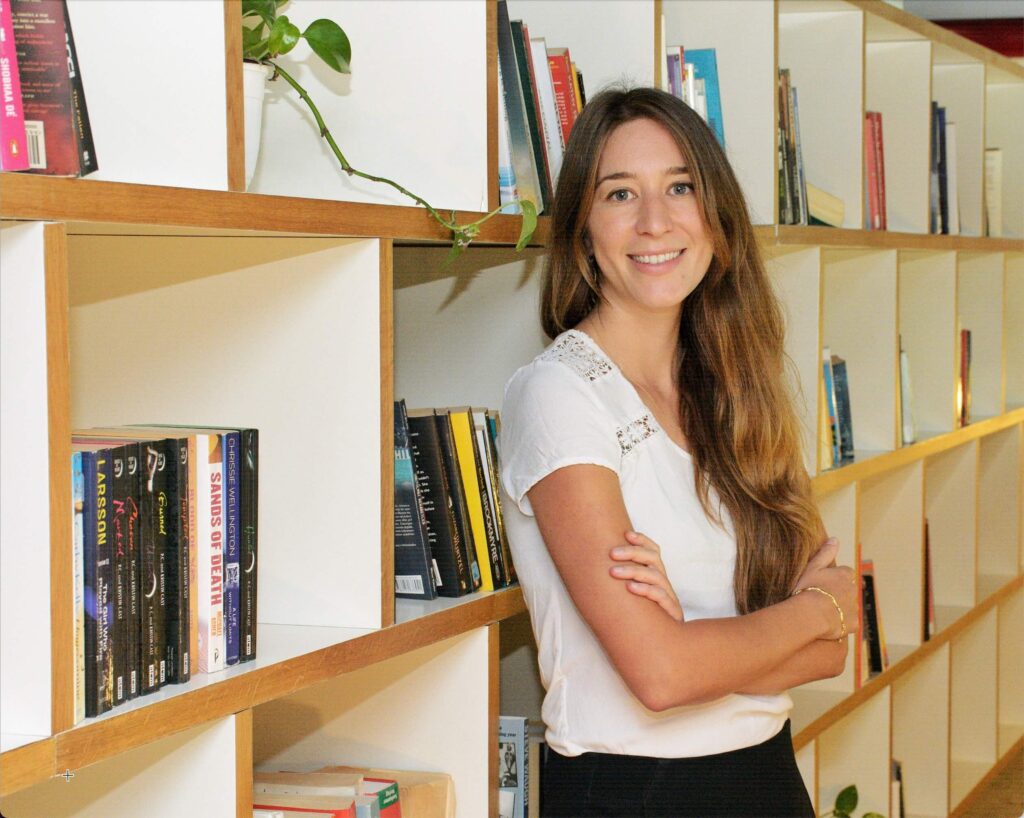
“Dedication is not what others expect of you, it is what you can give to others.“
When we pursue our passions with dedication, we inspire others to do the same. We create positive ripples of change in our communities, and pave the way for others to follow in our footsteps.
As women, dedication is a key trait that can help us achieve our goals and reach our full potential. By dedicating ourselves to our passions, we can inspire others and make a positive impact in the world.
Let us embrace the power of dedication and use it to achieve our dreams and make a positive impact in the world. My advice to other women is to find your passion, commit to it fully, and let your dedication be the driving force behind your success. Remember that your dedication isn’t just for yourself – it’s a gift that you can give to others, inspiring them to reach for the stars as well.
19. Galia Elmaliah-Herman
Senior Strategic & Organizational Consultant, Author of Torat Ha'Ergunim
Adaptability
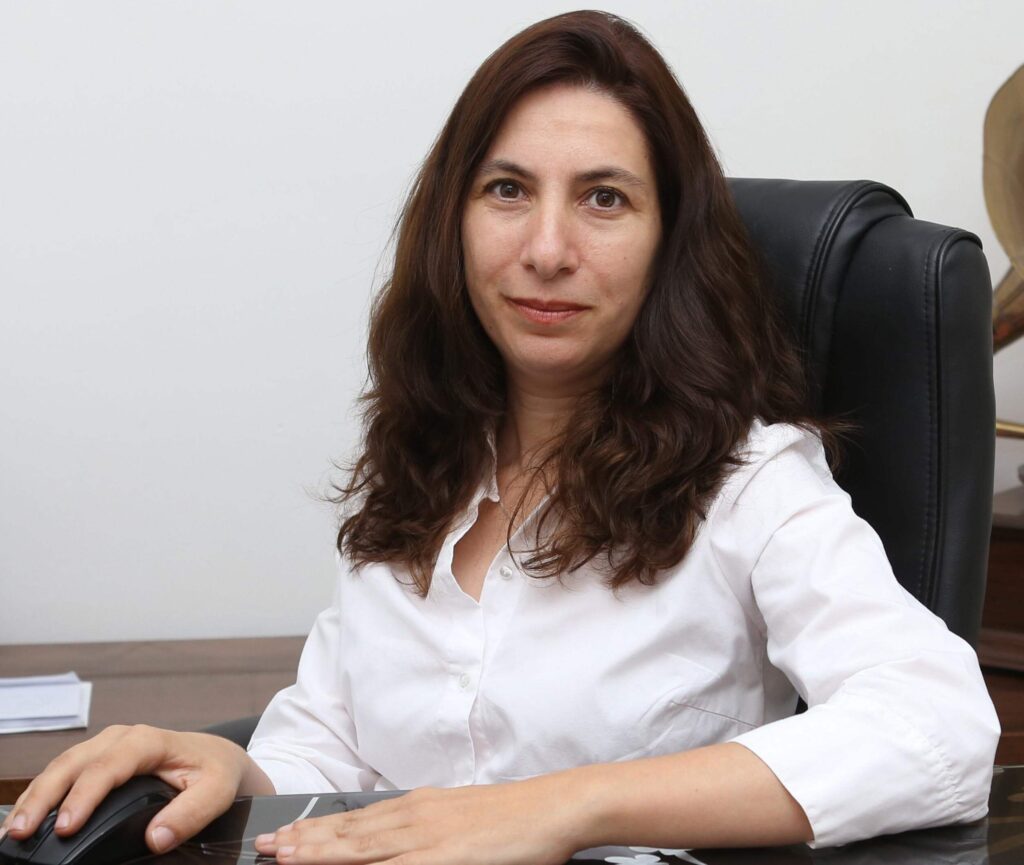
Adaptability is a core skill that contains a variety of sub-skills such as problem-solving, creativity, curiosity, positivity, agility, resilience, responsiveness and more.
The main challenge these days is to remain relevant by dealing wisely with frequent changes. The world is picking up speed, forcing us to react quickly. Therefore, no doubt Adaptability is one of the most important skills nowadays. As Charles Darwin defined it: “It is not the strongest of the species that survive, not the most intelligent, but the one most responsive to change”.
I recommend enhancing your Adaptability by implementing the phrase: “Start small think big”, meaning, focus on practicing sub-skills related to Adaptability’s core skill, such as:
(1) Step out of your comfort zone – seek out new experiences and opportunities
(2) Keep an open mind – find the conventional solutions, as well as those that are not, and also find the additional solution – the one you haven’t thought of yet
(3) Change the word (and attitude) from Impossible to I’m Possible – because when you think about it, almost nothing is really impossible
20. Dalia Feldheim
Organizational Psychologist and Co-founder of Uppiness Edutech
Courage

The ability to do something that frightens one. Strength in the face of pain.
Importantly courage is not the absence of fear. Its having fears, reaching into your superpowers and going ahead anyway.
Courage is probably the most misunderstood word In the world of modern leadership. People think it means making tough decisions or walking ahead of the troops; but courage actually comes from the French word coeur which means heart – because the really courageous leaders are those who lead from the heart – those who put the hearts of their people in the heart of what they do.
As I’ve written in Dare to Lead Like a Girl, leaders should connect to their heart when leading. There are tremendous benefits to embracing soft skills that have historically been undervalued:
Leading with purpose – helping your people find their purpose and operate from their strengths and passions
Perspective – helping people reframe failure as a stepping stone to success. Finding win win and overcoming limiting beliefs
Power up – listening to the physical heart- taking care of sleep food exercise and meditation
21. Pesha Fischer
Teacher
Family

Family is not just defined by people who share your DNA or your bed. Family is a way of looking at people that you share a country with. It’s why old women tell you to put a hat on your baby’s head. It’s why we cry when our friends’ children draft for the army. It’s why we feel connected even when we fight. It’s why we share food with strangers in the street. Because they aren’t strangers, they are family. Family is the ability to see that all people deserve to be loved and respected even when we disagree, even when we don’t like how they are behaving.
When we see each other as family, we value each other even when we disagree.
When you meet someone that you think is incredibly different from you then ask them questions and listen to their answers. Join organizations that promote dialogue.
22. Susan Fisher
Strategy & Communication Consultant and Coach Co-Chair Digital Eve Israel
Positivity
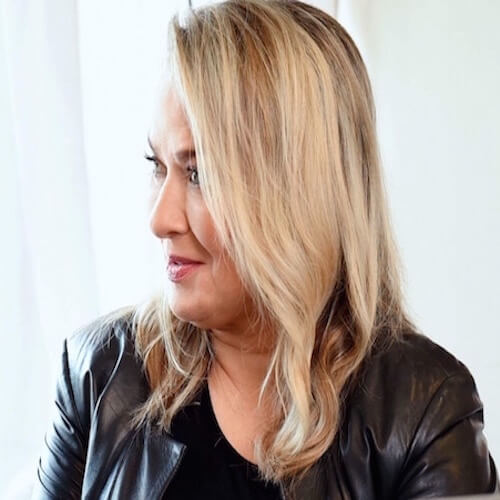
Positivity is not the upbeat, bouncy unrestrained type that is probably something that people are born with – that seems to me to be a little undiscriminating.
Rather, positivity is the quieter, reasoned and deliberate choice to be positive; looking for the good, calling it out loud and making the best of things even when there is precious little to salvage from a situation.
It matters because behind the source of Positivity is a belief that there will always be a better day. This is not just some lofty ideal but a practical guide to moving forward and taking people with you.
And it pays dividends. When we make it a better day – or even a just about good enough one – positivity shapeshifts into gratitude.
It wouldn’t be a value if we could promote it without doing it; you have to be the change you want to see. When negativity strikes – and it does all the time – I like to remind myself and anyone around me of the wise advice I heard early in my career “ Solutions not problems.” and “Tell me what you can do, not what you can’t do.” It works – of that, I am positive.
23. Alisa Galitzer
Oncology Nurse
Accountability

Accountability is about accepting responsibility for my actions – at home with my husband and children, at work with my colleagues and patients, with friends and family, and with myself. Life isn’t perfect; we are all human and make mistakes, but as long as you own them, learn from them, and forgive yourself, you can move on successfully.
When things go wrong, it is much easier to find excuses and place the blame elsewhere, but I really believe it is so important to take responsibility and look inwards. Accountability is how we can better ourselves – both professionally with further education, as well as personally. There is always room to grow!
I teach a large number of nursing students and new nurses at the clinic, and by far the most effective method is to practice what you preach – lead by example. If I want nurses of the future to be accountable for their actions they need to see it from me. Society these days feels so reliant on someone else doing things for you, but we need to get back to doing more ourselves and be accountable for it.
24. Leah Gelband
Career Coach and School Psychologist
Simplicity

Simplicity is the art of uncomplicating my life. It seems like our default (at least mine) is to overdo and overthink, and that constantly makes us feel that there is a never-ending gap between what is desired and what we have.
Over complicating things makes us get stuck in our ways and doesn’t allow for flexibility and fresh perspectives. It leaves many people confused about how to go about life. It insulates people from their surroundings and masks the beauty of people’s kind hearts. In society, this especially stands out with maladies such as bureaucracy, prejudice, polluted environments and even with anger and grudges that we hold on to because “it’s complicated”.
Using simplicity as a guiding value will enable each individual to act more freely and be less hung up about perfection and others’ opinions.
- Always ask yourself: And if it were simple, what would this look like?
- Speak from the heart and say what’s really on your mind. I know this is not always possible, but it’s my winning strategy and the key that enables me to connect to many types of people. Speaking your truth will unclutter your heart and your mind and have lasting effects on those around you (and rippling effects on society!).
- Ask yourself: What do I want? and really listen.
25. Jamie Geller
Chief Media and Marketing Officer, Aish
Graciousness
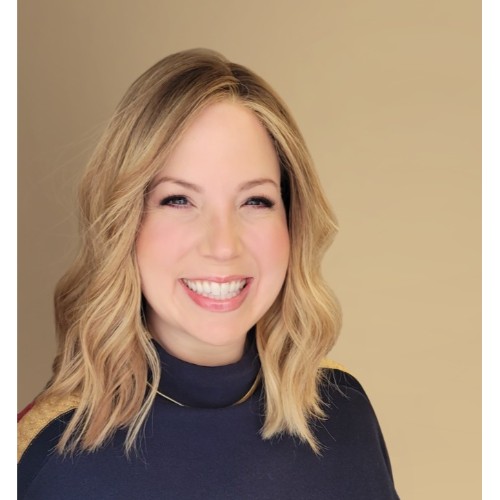
While Merriam Webster defines gracious as marked by kindness, courtesy and characterized by charm, the Hebrew word חן (Chen) is defined as grace, favor, and beauty. I connect to this value so deeply because my Hebrew name חנה (Chana).
When I see someone genuine, kind and with that special sparkle, in French they’d say “je ne sais quoi” – a phrase whose literal translation is “I don’t know what” but really means “a thing that can’t be defined, adequately described or expressed but whose appealing quality and existence is understood intuitively” – is exactly what I think is at the heart and soul and basic makeup of every Jew.
I think it’s critical we uncover the inherent graciousness in ourselves and dig deep to see that quality in others. When we express this value and identify this value in others, our everyday interactions, deep conversations and important relationships become more pleasant, tempered, respectful, understanding and kind. All of which we so desperately need in every arena of our personal and professional lives.
26. Sivan Geva
Head of Communications, Intuit Israel
Understanding

The value of Understanding lies in our ability to connect the dots and gain insights into why people behave the way they do. It’s a graceful approach that embraces acceptance and compassion and stands in stark contrast to judgement and criticism. When we practice Understanding, we open ourselves up to new perspectives and deepen our relationships with others. We become more empathetic, and our interactions with the world become more meaningful and fulfilling.
“You don’t need strength to let go of something. What you really need is understanding.”
– Guy Finely.
Understanding can be a powerful tool in both your personal and professional life. By approaching situations with empathy, grace and understanding, you can create a more inclusive and supportive environment, make better decisions, and ultimately lead a more fulfilling and meaningful life.
At Intuit we have this amazingly simple tool to help us promote understanding and empathizing with our team members. It is called the Journey Line exercise.
Each team member reflects on their life’s profound moments and plots them on a Journey Line chart with an X-axis for time and a Y-axis for emotional highs and lows. The exercise concludes with a summary of how their Journey Line shaped their core beliefs, revealing itself daily in the workplace. It creates a safe space for co-workers to share their whole selves, fostering greater appreciation and understanding which ultimately creates amazing inclusion.
27. Tzipi Gon Gross
Psychologist, Writer, Editor and IDF Radio Show Host of “Sfarim Rabotai Sfarim”
Creating a strong society
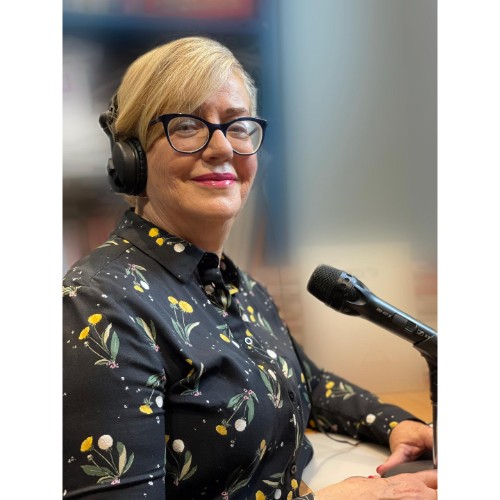
Created by Hans Christian Andersen in the 19th century, The Ugly Duckling was awkward and unsightly and so rejected and mistreated. In the 20th century, Elmer the Elephant (Bentzi in the Hebrew version) by David McKee, stood out among gray elephants due to the unique color patches on his body, and feared he was being ridiculed.
In society, particularly during childhood, those considered different are new olim, children with autism, children with different skin colors, and those who are exceptionally tall, or overweight, among others.
People different than ourselves elicit curiosity, apprehension, and challenge what is familiar and known to us, and therefore for the most part, are rejected.
The strength of a chain is determined by its weakest link. A society that includes a diverse range of individuals is one that is healthy and robust. Such a society is capable of developing and thriving.
Israel has made progress in recent years – advertisements include individuals with different skin colors, some models are thin others are full, the Shalva band features performers with special needs, and the youth movement Knafaiim Shel Krembo bring together youth with and without disabilities…but we still have a long way to go, and efforts must begin at an early age both in educational settings and at home.
28. Gila Green
Novelist, Book Editor, EFL Lecturer, Creative Writing Coach
Exploration

Exploration means traveling to new territory. This can take many forms. You can travel to new inner territory by exploring a personal form of expression, such as writing or writing in a new genre or format. You can travel to new territory by physically going to that place you’ve always wanted to experience. You can explore new areas in relationships personally and professionally. Exploring is limitless.
Exploration means expansion and it is what shapes our world, whether on the micro level regarding our own families or on the macro level, our communities, cities, and countries. Exploration means finding out more and there’s always more, you are never done.
By respecting those around us and listening to them, we can encourage exploration. People who feel valued and respected are not afraid to ask questions, to open up new areas of communication. People who don’t are stifled. Encourage your friends and relatives to try the things they’ve been talking about for so long. Instead of being that person who tells them all of the reasons why they can’t try something new, be the person who helps them figure out how they can.
29. Fara Hain
VP Corporate Marketing, Skyhawk Security
Justice
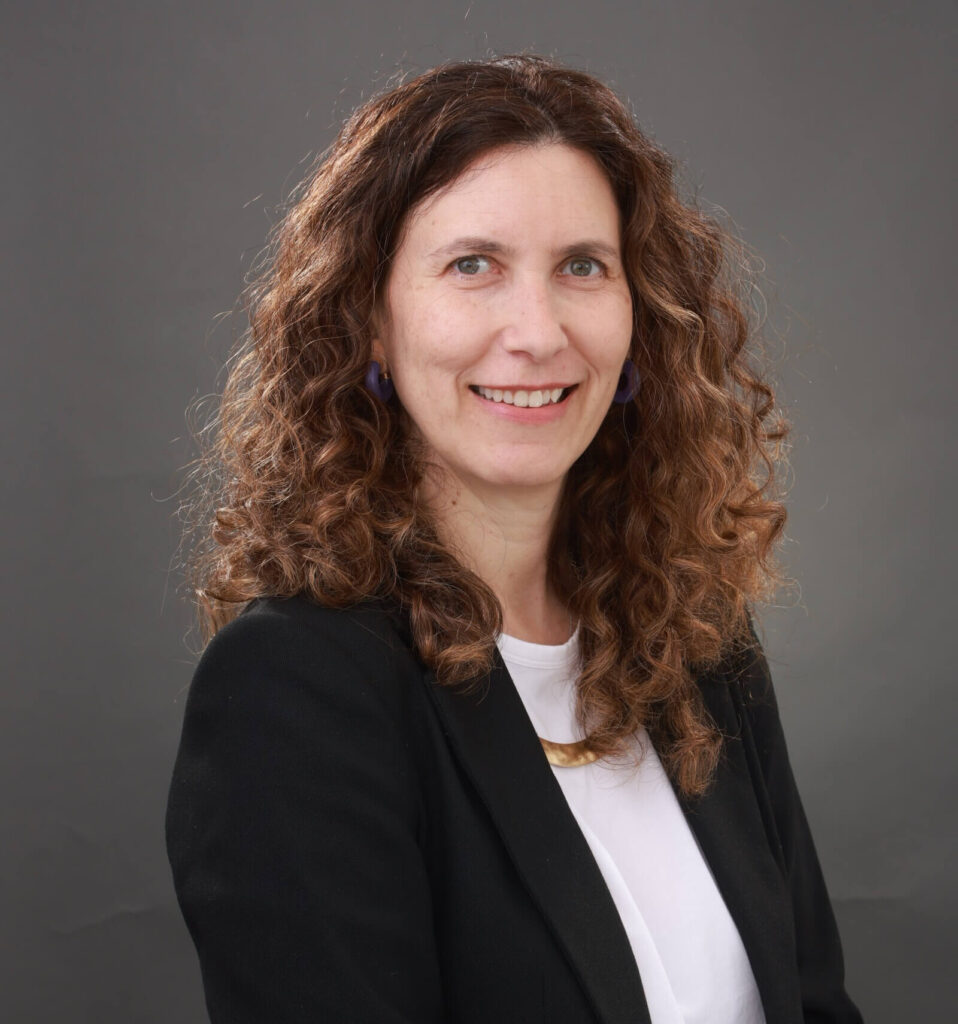
Generally rooted in the concept of fairness, justice underpins the legal and moral code of any society. It is a balancing act between what a society deems is right or moral or fair and serves as the basis for enacting laws.
There’s a biblical verse, “Justice, justice, you should pursue,” and the verse continues, “that you may inherit the land.” It’s a helpful reminder that the active pursuit of justice, laws, and fairness are the only way to govern a country successfully.
Perhaps pursuing justice today – when so many aspects of ‘what is just’ are debated – means that we get out of our comfort zone to understand the merits of both sides of an argument. If we pursue Justice by genuinely looking not only at our own beliefs and values, but also the beliefs and values of those on the other side, I believe we will enact laws that adhere to the pursuit of justice.
30. Rona Henig
Project Manager for Events, Exhibitions and Experiential Marketing
Fairness

Fairness means leading your staff, suppliers, colleagues, collaborators, and all people you lead, without ill-using your privileged status for your own protection or for escaping responsibility.
Fairness is another word for mutual trust, respect and integrity – basic characteristics of any leader and the foremost reasons that motivate individuals to follow and collaborate with you.
Unworthy leaders or toxic leaders use their uncriticized position to unfairly escape responsibility or consequences for their actions and decisions and nobody wants to follow them or really contribute to their cause.
Once a leaders’ actions are defined by fairness you will find him/her leading by example and promoting a healthy organizational culture.
Educated people in positions of power need to face reality in a fair way: they should admit their mistakes, take responsibility, and avoid the temptation to unfairly lay blame on subordinates, employees or suppliers, either because they lack courage or because an accountability mechanism is absent.
31. Diana Heuman
Digital Marketing Consultant
Truthfulness

Just tell the TRUTH. It’s simple, right? Straight cold hard facts. But then we add a filter to look better. We exaggerate to get more likes. We use deep fakes and AI then pass it off as the real deal.
The truth has been sacrificed for perfection, attention, and sensation. As a society, it has made us suspicious of each other and miserable about ourselves.But the truth holds the magic of authenticity, the power of honesty, the strength of trust, and the charm of relatability.
If we use Truthfulness as a guiding light, we will be rewarded with real growth.
Learn how to navigate the digital world
- Think critically about everything you see and read
- Help your kids spot fake “reality” online
- Your attention is valuable currency online. Give it only to those who deserve it.
32. Noa Hirsch
Regional Director Terem Emergency Centers, Two-time cancer survivor
Preparedness

Although I work in emergency medicine, I am fond of the saying “Failure to plan on your part does not constitute an emergency on my part”.
To me preparedness means being responsible for the curveballs life will inevitably throw us, and making a plan in advance on how to handle them. This includes having a will, taking out the appropriate insurances for our lifestyles, and even making advance directives on how we’d like the end of our lives to look (an uncomfortable topic for almost everyone).
When I became a single mother (and therefore sole-breadwinner) of older teens, the first thing I did was make sure all my insurances were up to snuff, and caught up those that weren’t. This served me very well when I was diagnosed with cancer this year, for the second time.
I see so many women who leave all the financial planning to their spouse or partner. Trust is wonderful, but life throws curveballs – sudden illness or even deaths. Being prepared is the difference between needing to rely on crowdfunding to meet your family’s needs, or being able to focus on what matters, secure that you’re prepared. As women we tend to overlook elements of financial preparedness. I’d love to see that change.
33. Aliza Hughes
Director of Thought Leadership at ZoecialMedia
Humor
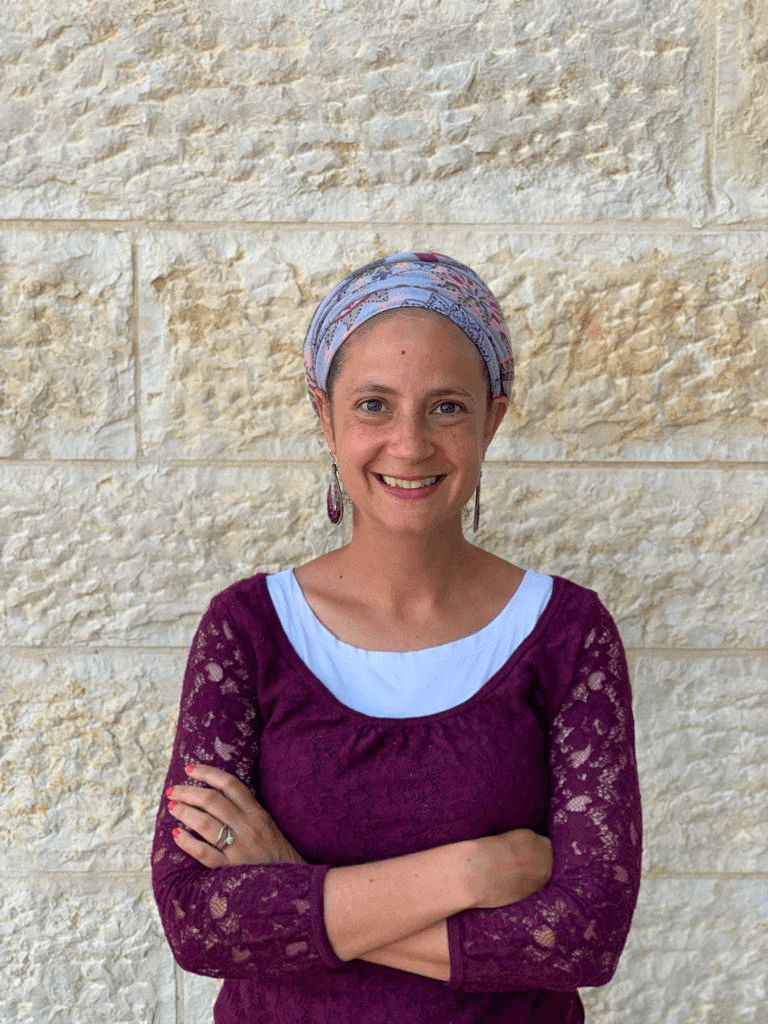
Humor is a communication tool that can be used to create a shared experience and positive emotions that encourage individuals to communicate more openly and freely.
When we share a laugh with someone, we open lines of communication that weren’t there before because we’ve shared a piece of ourselves that’s a little more relaxed, a little more natural. We suddenly feel more comfortable with the other person, like we can talk to them more openly and freely.
Imagine if we could talk openly with others whenever we wanted? Imagine if we just said what needed to be said instead of wasting time and energy avoiding confrontation or conflict?
That’s what humor brings to the world.
Share a smile, share a joke, share some joy and you’ve opened up a line of communication, regardless if you’re standing at the company water-cooler or at Thanksgiving dinner.
34. Moran Israel, Ph.D.
Behavioral Researcher and Data Scientist
Persistence
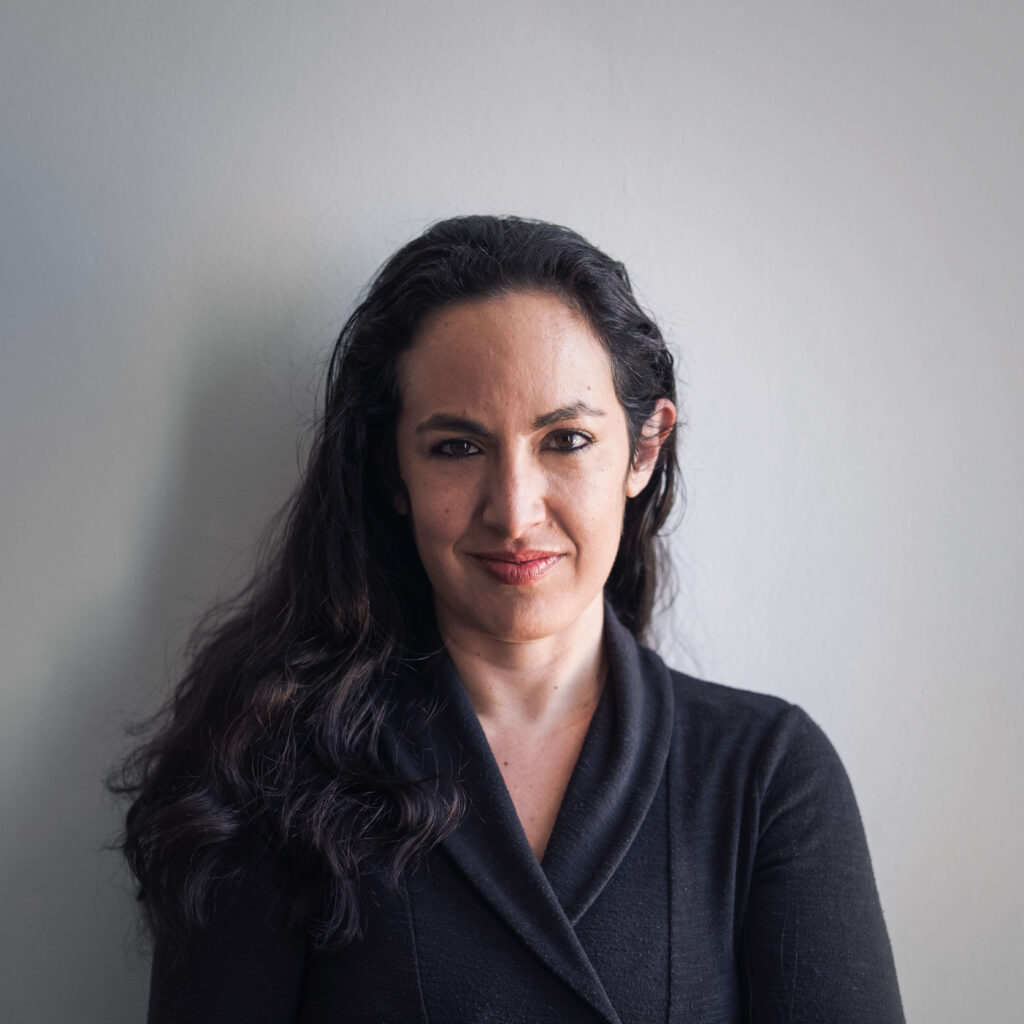
“First forget inspiration. Habit is more dependable. Habit will sustain you whether you’re inspired or not. Habit will help you finish and polish your stories. Inspiration won’t. Habit is persistence in practice. You don’t start out writing good stuff. You start out writing crap and thinking it’s good stuff, and then gradually you get better at it. That’s why I say one of the most valuable traits is persistence.” – Octavia E. Butler
When I look back and think about how I got here and achieved my goals, the X-factor is persistence. We will always face obstacles and breakpoints, that’s just a fact of life. But the true measure of a woman is what happens after she hits a wall, whether she falls into despair and throws in the towel or picks herself up, regroups, reassesses, and goes at it again. Because challenges are what make us grow and improve ourselves. They take us out of our comfort zone and push our creativity to the limit.
Naturally, persistence needs motivation, discipline, and a strong sense of purpose, but I’ve always been more practical – when I set myself a goal, I try to make it as clear as possible, breaking large tasks into smaller ones, planning a time frame for completing the tasks, and not forgetting to reward myself for every task I complete.
35. Dr. Azi Jankovic
Business Consultant, Speaker, Podcast Host, and Mental Health Advocate
Learning
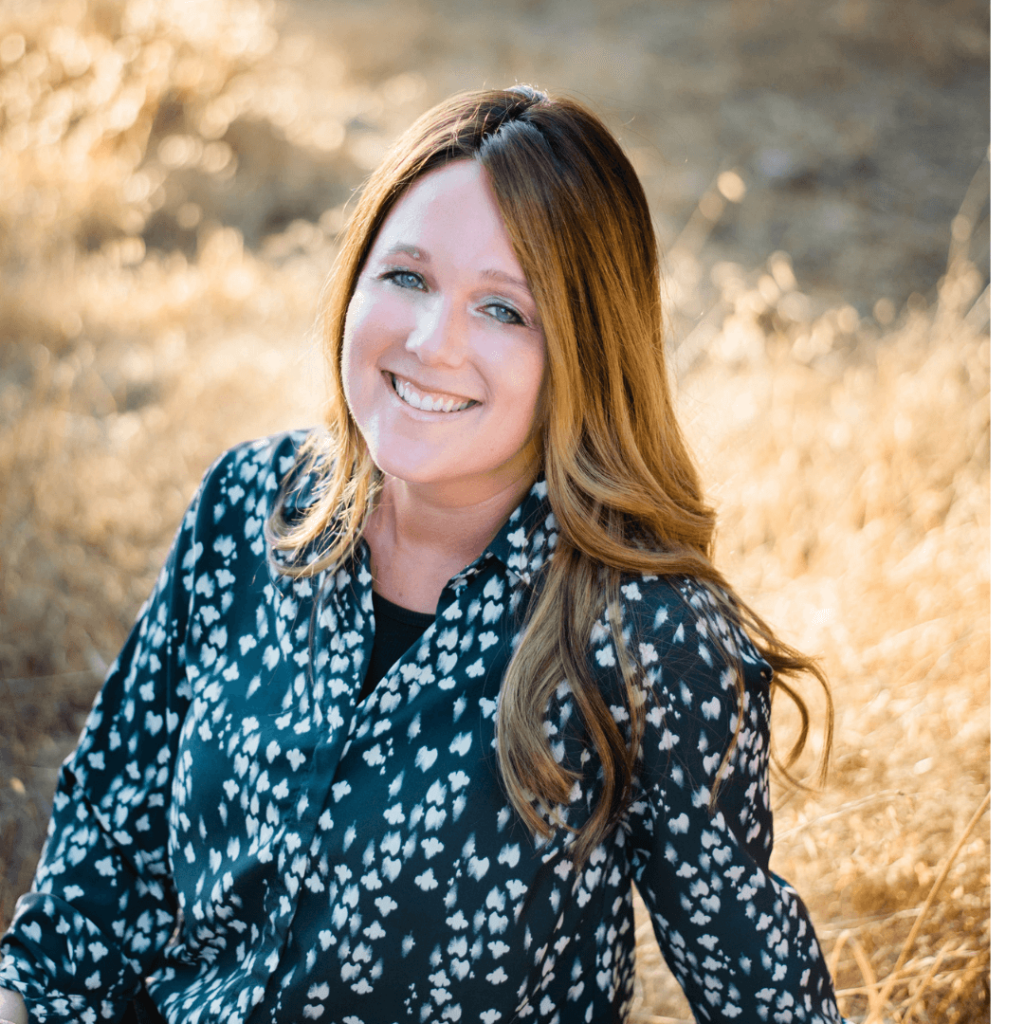
The acquisition and application of knowledge, skills, and beliefs.
An openness and willingness to learn is what will get us anywhere we choose to go. When you believe in your ability to learn, and the importance of learning, the entire game changes. “Failure” simply becomes feedback, and is thereby transformed into what fuels progress. Nothing is set in stone. Not intelligence. Not ability. Not ‘talent.’ And certainly not potential.
We can promote learning by asking questions, and by being brave enough to try something new, even if we don’t succeed at first.
We can ask others ‘how’ they have done what they have done. We can share what we know with friends, colleagues, online, or around the dinner table. We can consume knowledge.
And. Most importantly, we can create and share content and experiences from the learning that we’ve already done.
36. Sarah Kaye
Senior Technical Writer at Google
Compassion
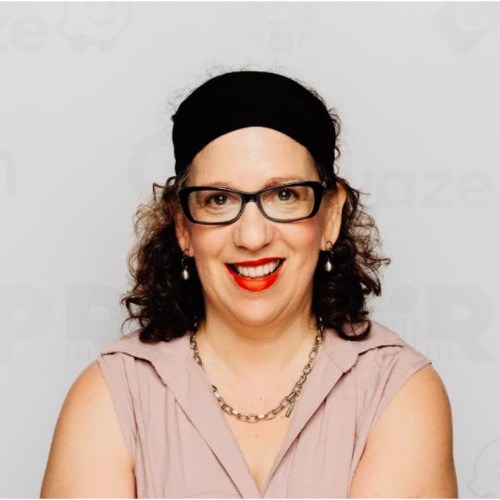
According to the Cambridge Dictionary, compassion is a strong feeling of sympathy and sadness for the suffering or bad luck of others, and a wish to help them.
Compassion is the bedrock of any decent and civilized society.
In any country there will be the “haves” and the “have nots”. Whilst I’m fortunate to live in a unique country known for its “melting pot” culture and for the numerous works of chesed and charity, there is also a deeper-rooted more disturbing side of affairs.
And this is the deep ignorance and fear that many of us feel towards the “other”. And this, in turn, is what leads to the terrible hatred and violence and the ever-widening polarization of society.
At every stage, we have to ask ourselves, why do the [insert your specific demographic here] behave like that? Can we see that maybe they have a different narrative? A different set of cultural values? A different ideological belief system?
Maybe if we put ourselves in their shoes for a day and felt some compassion towards them, it would lessen our anger and help us realize that it’s our moral compunction, or even duty to help out people less fortunate than ourselves.
37. Mascha Kosky Sachs
VP Brand at accessiBE
Inclusivity

Inclusivity means providing equal opportunities for all individuals, because everyone has a unique and valuable contribution to make. It’s making sure that everyone is given a seat at the table regardless of their backgrounds and experiences. What’s more, inclusivity ensures that the path to the table has been cleared, and that all people feel welcome there.
What people don’t always realise is that everyone benefits from an inclusive environment. It creates a richer dialogue which leads to more innovation, new ideas and greater creativity.
Start by looking around you. Make an honest assessment of your touchpoints with different types of people. Are there people at the table who are different from you? Are you staying in your comfort zone or pursuing diversity in your interactions?
Try it. Make an active effort to connect with a more diverse range of people both personally and at work. Think who else might have value to add to your meeting and invite them. Ask questions that encourage real answers. Share your own vulnerabilities to create a welcoming environment for others to do the same. The proof will be in the pudding and you’ll get a new perspective on old or new challenges.
38. Arela Koter
Marketing Director
Equality

Equality is about ensuring that every individual has an equal opportunity to make the most of their life and capabilities.
Equality mostly influences underprivileged populations, such as the poor, women, people of color, minorities and more.
Equality manifests itself by providing all people with the same opportunities in schools, academia, the economy, work and social conditions.
Equality is an important value for a healthy society. It shows that we care for all people and that we want to give them hope to achieve their personal and collective goals. Giving people hope, it affects not only their lives but also the nation’s prosperity.
When people don’t feel equal, they become frustrated which undermines their place in the community. This prevents them from striving to improve their lives, and ultimately affects the flourishing of the economy, education, health and technology.
- Ensuring women’s equality in major decision-making junctions
- Providing education for equality at primary education stages
- Providing equal resources, such as education, health, and more, to underprivileged populations
39. Revital Kremer
Strategy and Marketing Specialist, Lecturer and a Personal Entrepreneurship Coach
Flexibility
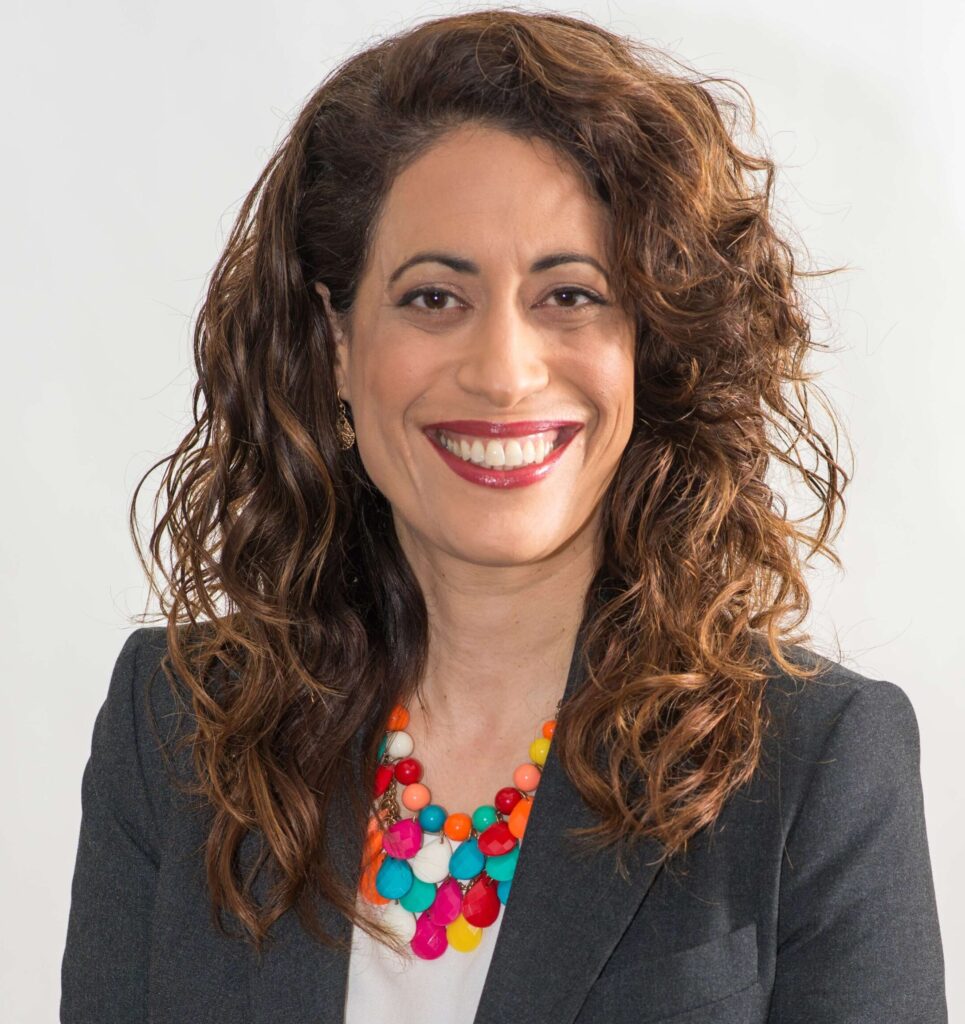
Flexibility means quickly adjusting your thinking or behavior and adapting to new situations. Being adaptable also entails letting go of rigid thought patterns and welcoming change even if we didn’t ask for it.
Flexibility can help one face life’s challenges, as well as learn and grow from experiences. Flexibility and continuous learning are critical for our success in today’s fast-paced and ever-changing world.
In Chinese culture, a flexible person is often compared to bamboo, able to bend when the wind is too strong and stand tall when the sun shines. Our ability to be flexible and adapt to reality is critical as women, mothers, business owners and entrepreneurs.
Try to be present, increase your self-awareness and gain perspective on your thoughts and emotions.
Ask yourself “WHAT IF?” to help you develop a flexible mentality. Be open to new ideas, SAY YES to new experiences and be open to different points of view and perspectives. This may help you expand your horizons and help you approach problems from a new perspective, which will make you mor creative, vital and brave.
Cultivating flexibility has many benefits, including giving you great stories to tell your grandchildren when you get old.
40. Orit Lahav
Adv., Executive Director Mavoi Satum
Open-mindedness
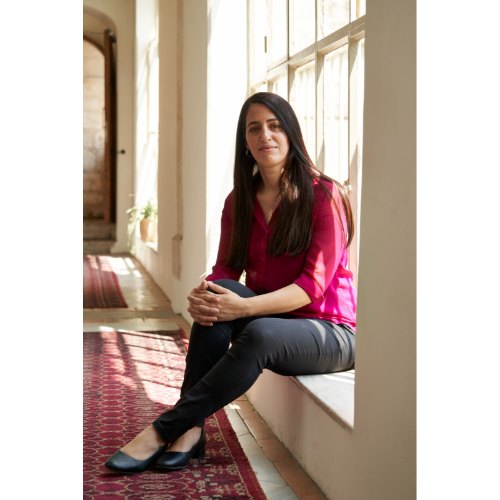
Open-mindedness is the most important value for human development. Doubt everything, ask questions, investigate, experiment. Open-mindedness allows us to examine our positions instead of working on auto-pilot.
As a behavior, open-mindedness can be expressed through being adventurous, being willing to say yes more often, and approaching new people, experiences, and the world, with an open heart and a curious mind.
Among other reasons, open-mindedness is important for creating social change. As a woman who deals with the problem of agunot, I find that the mental barrier is our biggest obstacle. People are sure that the agunah problem has no clear solutions – that is has always existed, and will always continue to exist. Our greatest challenge is to provide an alternative – to demonstrate that a world without agunot is achievable. One this idea is embraced, the path to such a world will be very short.
Through education, open-mindedness can be cultivated by fostering curiosity and inquiry from an early age. In later stages of life, one can practice open-mindedness by seeking out meetings with diverse individuals – meetings with the aim of listening and understanding, rather than convincing others. Exposure to diverse content can also help cultivate open-mindedness.
41. Keren Leshem
CEO, OCON Therapeutics
Gratitude
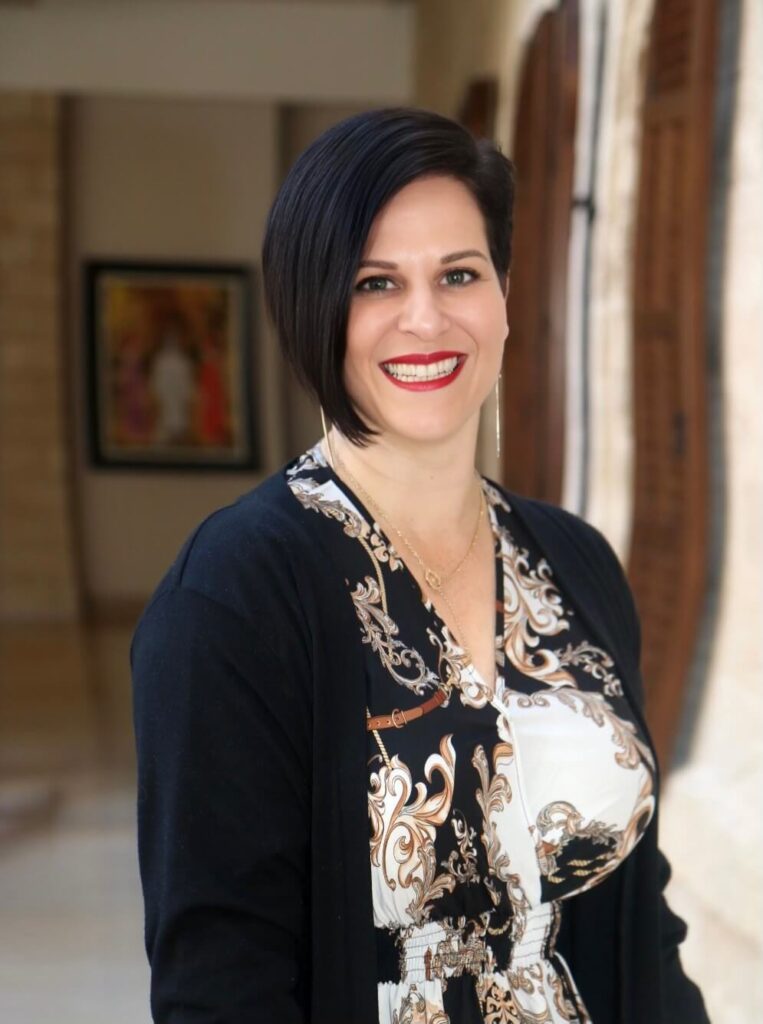
Gratitude is the quality of being thankful, showing appreciation, and acknowledging goodness in our lives. It can help shift our perspective towards positivity and enhance overall well-being.
Gratitude is an important value that can help us lead happier, healthier, and more fulfilling lives, while also strengthening our relationships and sense of well-being. Gratitude is an important value for several reasons:
1. It promotes positive emotions
2. It strengthens relationships
3. It fosters empathy
4. It promotes a positive-growth mindset
5. It encourages generosity
6. It strengthens resilience
Practicing gratitude involves actively seeking out things to be thankful for and expressing appreciation for them.
Here are ways we can practice/promote gratitude:
Volunteer or give back: find ways to help others in your community or donate to a charity you support and reflect on the impact you’re making. Choose one cause that works for you. That’s all you need to do!
Express gratitude to others: Say thank you and show gratitude to loved ones, friends, family, team members, and even strangers or those you find less ‘valuable’ or ‘friendly’ – everyone loves to be seen and thanked when they are helpful (even if it’s something small).
42. Bosmat Levi
Head of International Division, Wissotzky Group
Freedom
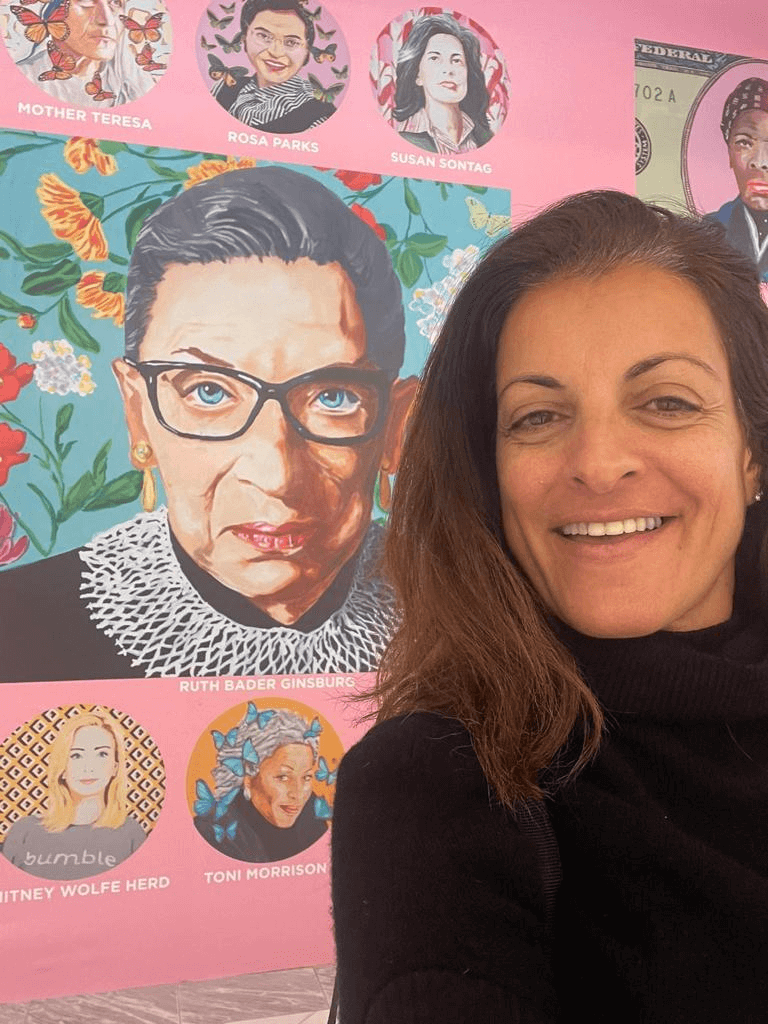
Freedom is the ability to run my life on my terms, to be able to express myself the way I want and ensure that my children can also enjoy such freedoms without fear. Freedom is being my true self all the time.
Freedom is one of the most significant values, since it gives us the right to be ourselves. Freedom of expression is an important human right which is vital to any democratic society. It enables the free exchange of ideas, opinions and information and thus allows members of our society to form their own opinions on issues of public importance.
Educating our children
We need to teach our children about their rights and freedoms, encouraging them to think critically and question the system and established inequalities, and model these behaviors ourselves.
Fight for our rights with no fear
We need to be vigilant and stand up for ourselves and others when we see our rights being violated or restricted, even if it feels uncomfortable or risky. We can look for organizations and movements that advocate for greater freedom and human rights, and use our voices and platforms to amplify their messages.
43. Irit Levi
CEO & Chief Strategist, Day By Day
Spirituality
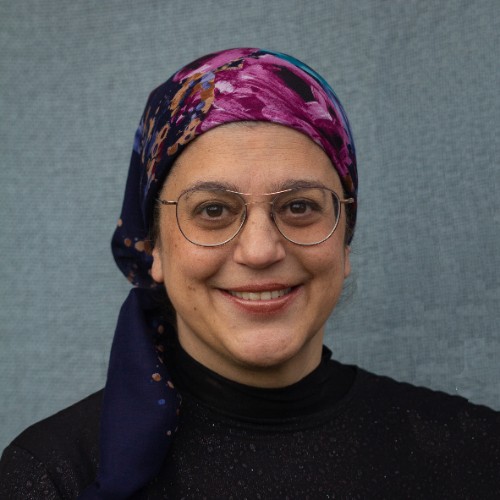
Spirituality strives to answer questions about the meaning of life, how people are connected to each other, and truths about the universe.
It can provide a sense of purpose, comfort, and connection to something greater than ourselves. It can help us cope with difficult times, find inner peace, and build meaningful relationships with others. It can also inspire us to live a more ethical and fulfilling life.
When things don’t go as planned, recalibrate your thinking. Remember that what seems bad now may lead to something better in the future.
In the Gmara (Chulin) Rabi Illa says “the world only exists for he who curbs himself during an argument”.
In today’s complex climate, perhaps we can tap into our spirituality best by teaching ourselves and our children the art of mutual respect… and silence.
44. Ayelet Mamo Shay
Businesswoman, Chairwoman Gibraltar-Israel Chamber of Commerce, International Speaker, Author and a Ph.D. researcher about small Jewish communities around the world
Determination
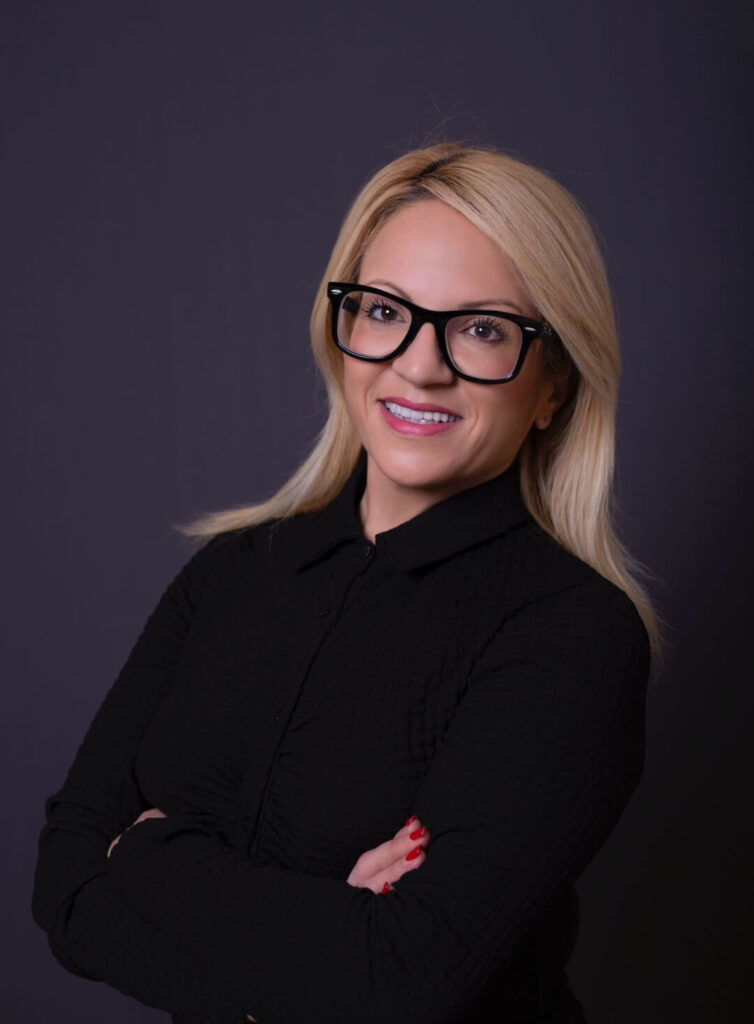
Determination is the quality of being committed to achieving a goal or completing a task despite difficulties or obstacles. It is the ability to persist and persevere in the face of adversity and setbacks.
Determination involves having a clear and specific goal, a strong sense of purpose, and the willingness to put in the necessary effort and hard work to achieve that goal.
Determined individuals are flexible and adaptable, and they are able to adjust their approach when faced with unexpected challenges or obstacles.
Determination is a valuable quality that can help individuals overcome obstacles and achieve their goals.
One idea to promote determination in society is to showcase and celebrate stories of individuals who have demonstrated exceptional determination in order to achieve their goals, especially in the face of adversity. Another approach is to provide mentorship and support to individuals who may be struggling to achieve their goals.
45. Hagar Man Sarusi
Employer Brand Specialist, VP Digital & Innovation, Maof
Self-discipline
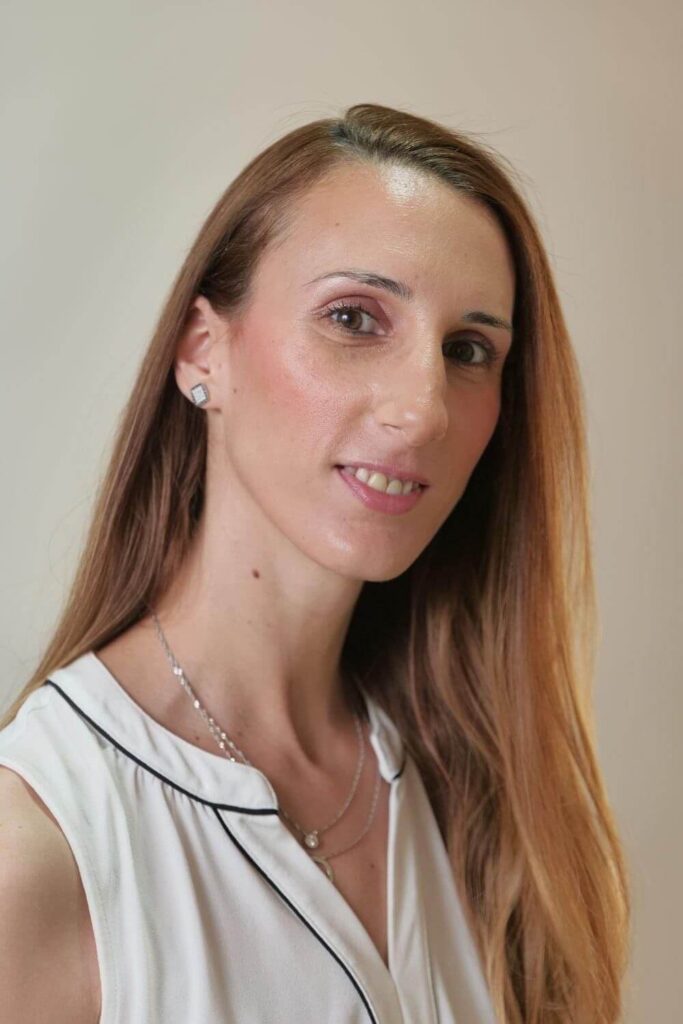
Self-discipline is the ability to take action without external prompting or expectations. It is you who motivates and leads you to harness your abilities towards success, without relying on external factors. Self-discipline is about making decisions that align with your values despite external distractions, challenges, and temptations. It’s driven by internal motivation, focus and persistence towards significant long-term goals, even if it means enduring short-term inconveniences.
Self-discipline is the daily practice of making and implementing decisions according to plans, despite challenges. It involves effective time management and the ability to focus on important and meaningful tasks.
Self-discipline allows people to make choices that advance their long-term goals. It encourages growth and personal development, enhances one’s ability to conquer goals, and has the potential to foster a more productive and prosperous society where people take responsibility for their actions.
Like anything else, self-discipline gets better with practice. By setting goals for ourselves, planning how we’ll achieve them, and breaking them down into smaller manageable tasks, we can develop self-discipline over time.
46. Judith Manassen Ramon, Ph.D.
Documentary filmmaker, media psychologist, leadership researcher in social movements, social and environmental activist, narrative fixer
Democracy
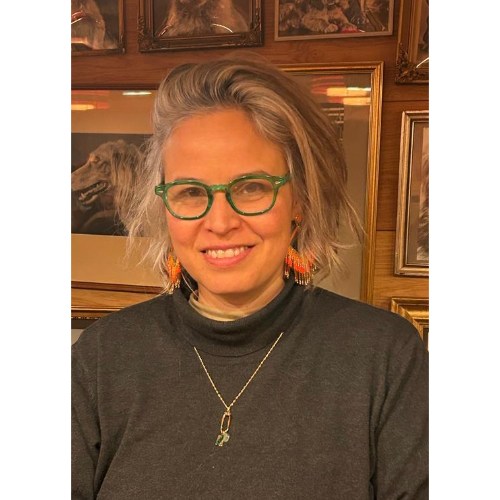
Some mistakenly think that democracy is the majority rule, since that is how its representatives are elected. In fact, Democracy is measured not by the majority rule but by its ability to protect its minorities, its most vulnerable.
Democracy is the common denominator, enabling the full range of colors in society’s rainbow to manifest themselves. In better times, democracy is not a goal in itself but is an essential, preliminary condition for society to thrive.
It is what is needed to bring the best out of minorities, and when minority rights are protected the majority is free to thrive.
Democracy is also strongly connected with equality of basic civil and human rights, provided to all people under its governance.
This year, more than ever, I wish for the people of Israel to connect to the spirit of tolerance, equality and acceptance, as without these, democracy can become an empty vessel.
47. Marni Mandell
Executive Leadership Catalyzer, Co-Founder Konnecto
Empathy

Empathy is the ability to feel how another feels, and then act in service of that feeling to motivate others to greatness.
Leaders can often take a myopic view of their people, only seeing them through their own lens. When a government’s short-term political future is at stake, it may prioritize serving only those who can help maintain its power. Empathy means understanding the motivations, needs, fears, and hopes of those who disagree with us or do not serve our power interests.
Through empathy, our country’s leadership can unite and revive the magic and solidarity that built this modern miracle.
Create community-based open forums with skilled facilitators across the country to promote dialogue and understanding on key social issues. Conflict-resolution frameworks can be used to ensure that different perspectives are heard and honored. To support this initiative, an army unit could be created to train facilitators and deploy them across the country. Similar to jury duty in the US, participation in these forums could be mandatory to build empathy among the public. This would give politician to build relationships with constituents who hold different views.
48. Naama Margolis, Adv.
Head of Defense , Aerospace & Global Trade Compliance practice at Shibolet & Co.
Humility
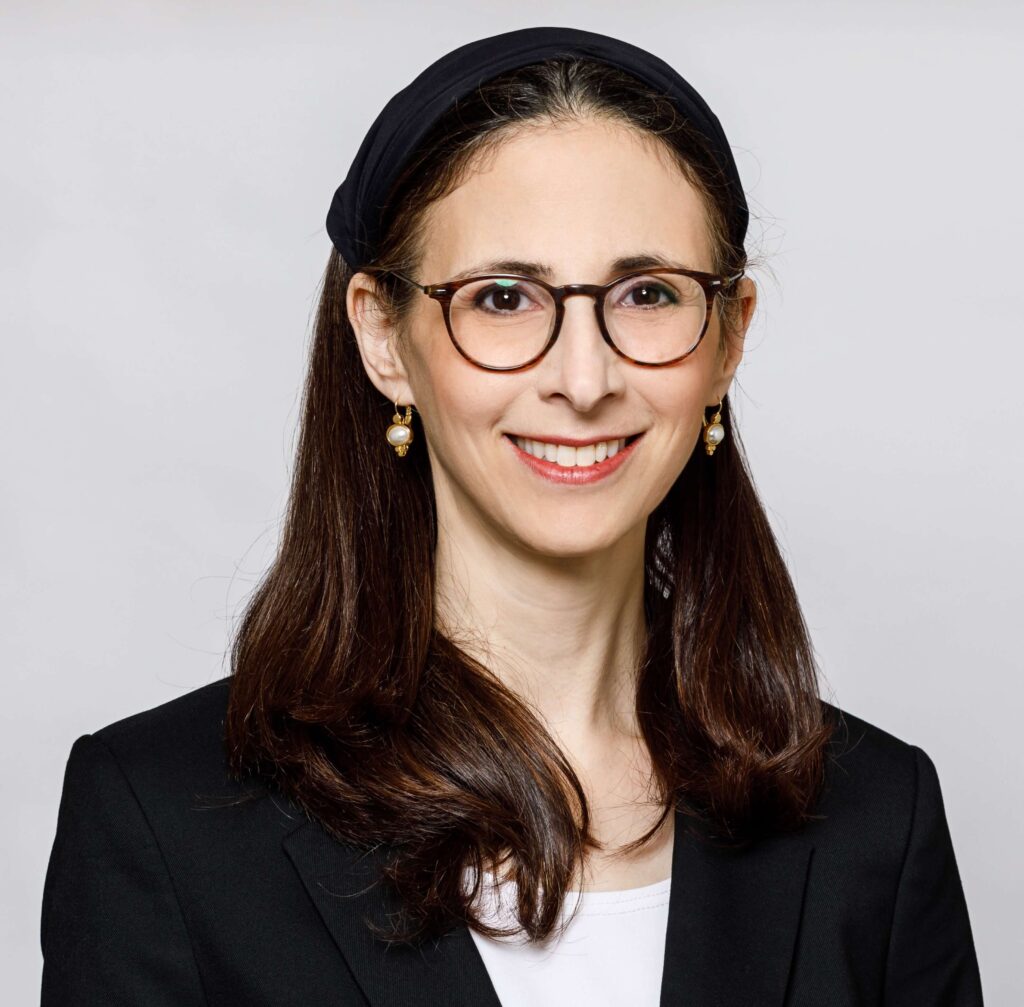
Humility is the recognition that each of us has been born with a certain nature and into certain circumstances that may give us certain abilities and privileges which others may not have. It is also the recognition that no one person has a monopoly on ‘the truth’; rather, that each of us filters our life experiences through a subjective lens. This recognition doesn’t have to lead to moral equivalence or to discounting one’s own abilities, but it does require self-awareness and a reckoning with one’s contours and limitations.
A humble person is open to listening and learning from others. A humble person is also more likely to reach agreements with others and reduce conflict.
We can become more aware of our privileges and limitations by making an intentional effort to listen without prejudice to people who are not entirely like us – whether in age, race, culture or beliefs.
49. Adv. Jane Olman
Partner, Rachlin-Olman Law Offices
Kindness
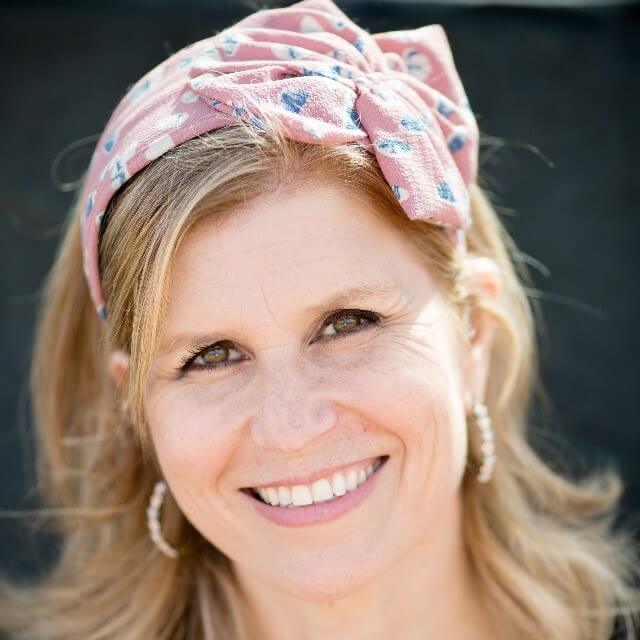
Kindness is often described as the quality of being considerate and friendly. I like to think of kindness more in terms of the chessed definition: loving-kindness. True kindness is not only how we treat one another outwardly, but begins with the thoughts and feelings we have towards one another inwardly. Kindness is a generosity of the heart in the way we judge other people and the motives we attribute to their actions.
More kindness in the world will only improve our society. Disagreeing with someone’s politics or actions when viewing them through a lens of disdain leads to dismissiveness and divisiveness. When being kind, one is more open to understanding where someone else is coming from and more forgiving of differences.
It is actually more difficult to *think* kindly of other people than to act kindly, but we can actively choose kindness of spirit and make it a habit. Actively try to give the benefit of the doubt, and allow for motivations for actions that you hadn’t considered. Words matter but so do the thoughts behind them.
50. May Piamenta
Founder and CEO of Vee
Teamwork

Teamwork is the mutual effort of a group of individuals working towards a common goal. It involves effective communication, cooperation, and coordination among all team members to achieve shared objectives. I believe successful teamwork can lead to increased productivity, innovation, and a sense of achievement for all involved.
Teamwork matters! It allows people to combine their skills, work more efficiently, and achieve a common goal. It promotes communication, trust, and job satisfaction, and can positively impact mental health and the wellbeing of the team.
Communication: Encourage open communication and active listening to ensure everyone is on the same page.
Trust: Build trust among team members by promoting transparency, accountability, and mutual respect.
Collaboration: Foster a collaborative work environment that encourages teamwork and emphasizes the importance of shared goals and objectives.
51. Sarah Raanan
Visibility Coach and Branding Photographer
Mindfulness

Mindfulness is about having an awareness of yourself in the here and now, knowing how to stay grounded and focused. By learning how to catch yourself and pay attention to your thoughts and feelings without judgment, you can keep your mind boat from capsizing even in the midst of chaos.
With the million things currently on your plate and the 100 more on your to-do list, it’s easy to get lost in the past and the future and not ever experience being in the present moment. Being present allows us to let go of regrets about the past and worries about the future, and to fully immerse ourselves in the present moment, leading to joy, contentment and a much more meaningful life.
My favorite way to be mindful at work is to ‘Practice Presence’, by being fully present and engaged in each moment of my business activities. I aim to avoid multitasking and resist the urge to constantly check emails or notifications whilst in meetings. You can cultivate more mindfulness in your business by focusing on the task at hand, listening attentively, and being fully present in your interactions with your team, clients, and partners.
52. Lori Rosenberg
Occupational Therapist PhD
Being attentive
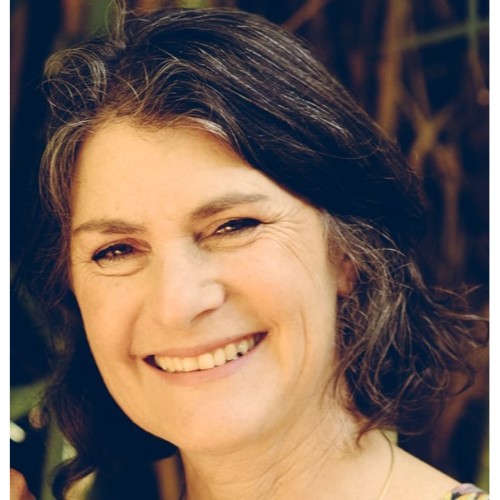
Being attentive means listening to people around us without judgement, and seeking to understand them, with respect for differences and with curiosity.
By being more attentive to people around us we can become more tolerant of diversity. When you ask people why they’ve done something or think a certain way, the answers are often surprising. We don’t have to agree, but we should listen. This goes well beyond politics, to cultural divergence and accessibility. People are usually very interesting if you give them a real chance.
It is not hard to start listening to people and asking them why, but we need to learn not to judge and not be threatened by differences – people at all levels of abilities, with other backgrounds, and different beliefs…. We are a much richer society when we can include a wide spectrum of individuals.
53. Maura Rosenfeld
Chief Business Officer, MindUP
Morality

Behaving morally is a standard you should feel proud of – that you’re treating others in the same way that you would want to be treated. It’s a human value that emphasizes that we have to take that we have to take responsibility for the consequences of our actions – making a choice based on the right things to do and not just what’s good for me, but about the effect it will have on others.
People seem to have lost touch with what that means, hiding behind labels that they’re acting for a higher power when their actions show just the opposite. Doing something for the greater good that benefits everyone is much more powerful than destroying.
We can all benefit from creating a large pie. We can fight to divide things up or we can help make everyone rise, grow, and thrive.
- By setting a personal example. We’re human and though we fail, we have to try our best for next time.
- Stay in touch with self-reflection
- When you’re in an environment where you can set the tone, set the standard for other people’s behavior
54. Jessica Rosner
Co-founder, Tech It Forward
Responsibility

As founder of Tech It Forward, an innovation hub connecting international companies and investors to the wonderful technologies Israel has to offer, I’ve experienced firsthand the impact of taking responsibility – representing our country in a positive way with every global meeting – showcasing its great minds, innovative solutions and its drive to create change worldwide, despite its political situation..
As a woman, I believe that we also have a responsibility to support and uplift each other. By being each others’ village in today’s busy society, we can create meaningful change and pave the way for a brighter future for our children and especially our daughters.
Israeli writer and Nobel laureate, S.Y. Agnon said, “The only true source of politeness is consideration for others.” For me this quote emphasizes that responsibility and unity go together, and that by considering the needs and perspectives of others, we can build a more just and equitable society.
My advice – let’s embrace our responsibility to support each other, accept each other’s differences, and work together in unity towards a brighter future.
55. Julie Rothschild Levi
Comedy creator, writer, and former medical clown
Patience

Patience is taking pause and taking a breath, gifting ourselves and those around us with a quiet yet powerful kind of compassion.
I’m going to take a wild guess that no one, when they reach 120, says about their life that they wished they’d rushed through it more. We hurry through our days, we expect things to happen in nanoseconds, and because of it we find our nerves frayed, our patience worn thin, and our encounters with others short-circuited. When we opt for patience we opt for a life better lived.
We live in an impatient society. We cannot shape Israel into a patient country overnight, but we certainly can be an example when we practice patience – whether that be in line at a supermarket, on the roads, or trying to hear someone out with differing opinions. To be patient towards each other is an act of ‘chesed’ (lovingkindness). What greater gift can we give?
56. Andi Saitowitz
Business Psychologist, Leadership & Team Coach
Curiosity
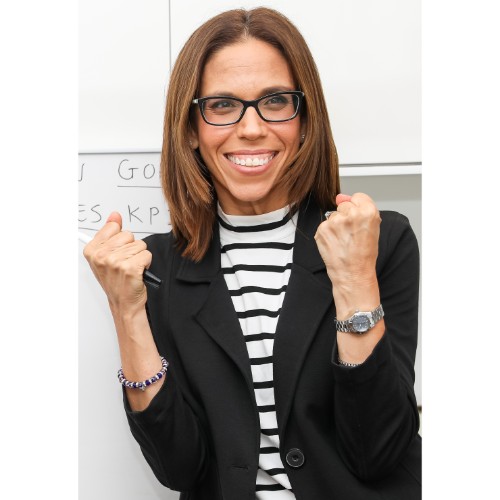
It’s an attitude and desire to know and learn more, to seek truth, inquire deeper and gain greater understanding. A superpower to broaden horizons, discover and experience new things, bring more awe and joy into life.
Curiosity helps us stay eternal life students and better-makers, with a thirst and passion for learning and growth. It can guide our decisions by encouraging us to consider new angles and alternative approaches, benefits, advantages and limitations to our choices. It can inform our work with people dedicated to creating outstanding results, meaning and impact. It enhances awareness and illuminates blind spots. It fuels kindness; driving us to seek understanding and show up with empathy.
– Ask open-ended questions that encourage unlearning, relearning and changing our minds through insightful conversations
– Build our willingness to get uncomfortable and see things for different viewpoints
– Ensure a vulnerability and humility to not have to be right
– Challenge outdated thinking and reframe old limiting beliefs that are no longer helpful
– Spend time with people who are different from you
57. Jodi Samuels
Author, Speaker, Disability Advocate, Entrepreneur
Hospitality

Hospitality – inviting people to your home is one of the most important Jewish values. The tradition extends from Abraham’s open tent to Jerusalem in Temple times. It’s part of the Passover Seder. Today it’s the hallmark of many communities. Every Shabbat we host 40-50 guests. Our guests include Jewish professionals exploring their heritage, new olim looking to create connections, friends, missions, lone soldiers and gap year students. Our home is open to non-Jews too who are curious about Judaism, Jewish life and culture. We have hosted Mormons, Muslims, Evangelical Christians, Swedish Pastors, East German politicians, Chinese businessmen, international relations students, and U.S. soldiers.
Welcoming people in your home and sharing a meal is the most powerful way to build friendships and break barriers. My children travel in their living room and appreciate other cultures, religions, and perspectives. We showcase beautiful Jewish values. As a 93-year-old Holocaust survivor at my table said, “My whole life I dreamed of sharing a meal with people of different cultures, religions, and race. Thank you for making my dream come true.”
Start by inviting a neighbor, colleague, or student. It’s that easy.
58. Dr. Miriam Schwartz-Ziv
Senior Lecturer in Finance and Director of Undergraduate Studies of Business Administration at the Hebrew University of Jerusalem
Resilience
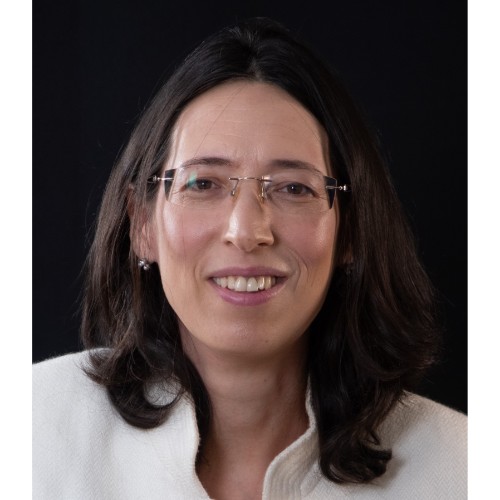
To remain strong, motivated and focused on your targets, even after you experienced a difficult situation or a setback.
Quite often, people that “made it” are able to successfully achieve their goals because they are resilient. When they experience a challenge, setback or at times even a failure, they use these situations as an opportunity to learn from their mistakes, and re-evaluate their path. They do not give up easily, and actively continue to pursue their goals even when times get tough.
When people doubt themselves, encourage them to believe in themselves, and recognize the power within themselves to take control of many situations, and steer their own ship in direction they wish.
59. Dr. Dafna Shaked
AI Excellence and Organizational Development Expert
Focus

Focus is like a superpower that enables you to concentrate on your own uniqueness, and channel your energy to the impact you wish to bring.
Picture it as a magnifying glass that helps you see things clearly and make decisions in alignment with your highest values.
Because when it comes to achieving success and productivity, FOCUS is one crucial ingredient that cannot be ignored.
But here’s the best part: The value of focus extends far beyond personal achievement, as it significantly impacts society as a whole.
My WhatsApp status slogan “Do what you do best”, captures what I believe in most: Concentrate on your specialty, connect it with positivity and energy, and the rest will fall into place.
By focusing on our core abilities and passions, we create a stronger society that is capable of solving problems and making positive changes.
60. Michal Shamir
Head, School of Art and Culture, Sapir College Israel
Critical Thinking

Observation is the initial practice required for critical thinking. It involves stopping to observe, seek depth and interpret visual nuances.
In a world where we are inundated with visual messages from social networks, television, private and public spaces, and everything in between, the importance of critical thinking cannot be overstated.
By observing and critically analyzing the power dynamics behind every marketed image, we can uncover the interests at play. This type of observation, along with critical thinking, enables us to be more engaged citizens, and also enhances our appreciation of art and nature.
Stop for a moment to pause and observe. Doing this from a particular point of view can be a transformative experience. And while it may not necessarily be a spiritual experience, it remains an incredibly valuable practice.
Whether it’s the cup of coffee, your neighbor’s balcony or a tree in the park, take ten minutes to pause and observe. Try to capture your observations in writing. This exercise is not meant to focus on the result, but rather on the act of observation itself.
61. Iris Shapira Yalon
A curious soul, Director and Poet
Creativity
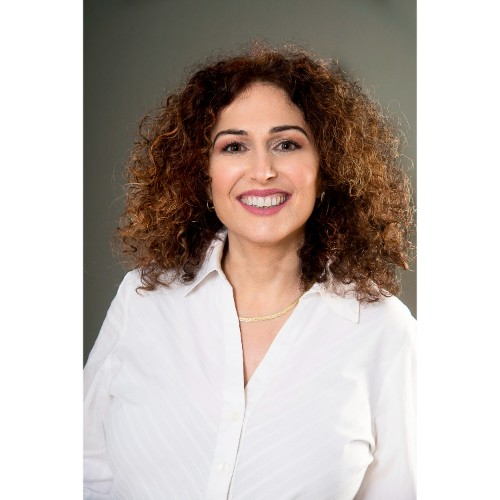
“Creativity is allowing yourself to make mistakes. Art is knowing which mistakes to keep.”
– Scott Adams
Creativity is a phenomenon whereby something new, innovative and valuable is formed. Creative thinking is characterized by fluency, imagination, originality and conceptual flexibility.
Creativity is the ability to think “outside the box” – breaking through and leaving molds. Creativity is a key trait that is required in almost every aspect of life.
It contributes to society in creating solutions to challenges, as well as helps individuals to fulfill themself. Israel, “the start-up nation” uses creativity for economic prosperity.
Creative thinking is not merely the domain of geniuses. It can be nurtured and developed by creating a climate free from criticism and judgment, with a broader perspective.
Be open to new things – diversified reading material, new hobbies, different kinds of people – different from what you have done so far – dream, dance, meditate, draw.
62. Simona Shemer
Senior Content Writer, Gova10
Being a team player

When you’re a team player, you’re willing to put aside personal differences and agendas to carry out a common goal. We can achieve greatness together.
Being a team player is one step closer to ensuring the success of your group. Taking on tasks that benefit all and supporting each other through them is the best thing you can do for yourself and the team. Being open to feedback is what being a team player is all about. Turn critiques into growth opportunities. Don’t be defensive, be receptive.
Turn critiques into growth opportunities.
Don’t be defensive, be receptive.
Dedication to improvement is the key to the strength of the collective.
Team players make the best leaders. Be a team player. Others will follow.
63. Aviva Shemesh, MBA
Energy and Climate Policy Consultant, Ecotraders Ltd. Ph.D. Candidate, Technical University of Munich
Sustainability

Sustainability suggests that social well-being is closely related with a healthy environment in all of its aspects.
Being sustainable means that we and future generation can and will continue living on Earth harmoniously with all the ecological systems surrounding us, the soil, fellow humans and all other living creatures.
In order to create a sustainable future, we have to make sure that the physical resources are not abused and that no one is left behind. This year has been a wake-up call to many in Israeli society, in that it made many people realize that continuing to do what we do is unsustainable in many ways. Caring for democratic values means caring for social justice just as we care for the climate and the ecology of nature. Democracy means also caring for our neighbors, near and far. We cannot promote one pillar and forget about the rest.
64. Shara Shetrit
Senior Social and Digital Media Manager, Nefesh B’Nefesh
Acceptance
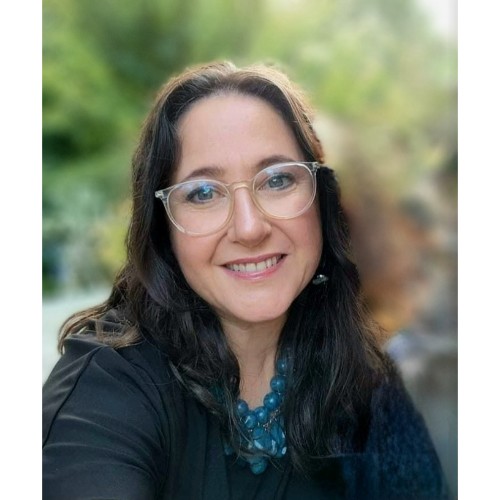
As a woman, mother, wife, and caregiver to my husband who has been challenged by MS for the past 20 years, I have learned that acceptance is about embracing all parts of ourselves and others, including our limitations, failures, and accomplishments, professionally and personally. It’s about recognizing what we are capable of and knowing when to draw the line for our own health and wellbeing.
Acceptance of who you are and where you’re at enables you to see how far you’ve come despite challenges. It’s easy to beat yourself up and “should” all over yourself, but that causes you to lose sight of what you’ve actually accomplished along the way. Acceptance frees you up to be kind to yourself and others and move forward.
- Being more accepting allows other to do the same. Free yourself and you free others.
- Accepting that everyone is dealing with a lot helps you to be more empathetic and in turn inspires others to be kinder to themselves and others
- Don’t just accept your limitations, be open to what they teach you
65. Gili Shlezinger
Fusion Applications – Israel Country Leader, Oracle
Human Rights
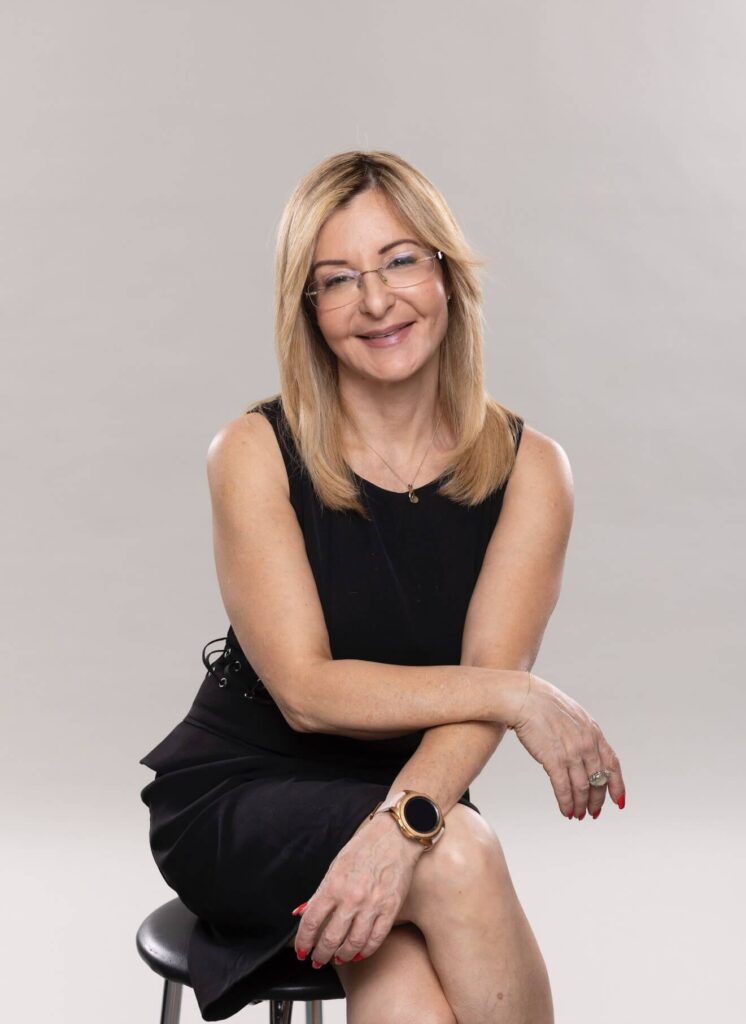
Each of us has rights that we are entitled to as human beings. We can live a life of liberty and freedom because of these rights. Our rights exist to ensure that we are treated fairly by others, that we are able to think freely, express ourselves, satisfy our desires, and achieve our goals. Regardless of gender, race, or religious belief.
Generally, human rights are meant to protect us from society’s powerful. Most of the time, the groups that are in power participate in government.
In a democratic country, the government is in the hands of the citizens. Therefore, without human rights it is impossible to have a democratic government (rule of the people).
In order for citizens to be able to exercise their rights, it is necessary for them to have human rights, this is the only way citizens can influence the government according to the majority’s will.
- Creating a constitution for the State of Israel that clearly states human rights
- Early education on equal rights regardless of race, gender, and religion
- Educating and modeling human rights at home to serve an example for children
66. Iris Shoor
Serial Entrepreneur
Diversity

Diversity is often associated with clear categories such as gender and race. And still, in workplaces that prioritize diversity, many of us still feel like we don’t belong. True diversity goes beyond these categories and encompasses acceptance of individuals for who they truly are. This means acknowledging and valuing introverts, individuals with unique perspectives, and those with different priorities. The feeling of being an outsider in a workplace is not always linked to gender, but rather can stem from feeling like everyone else in the room is an alpha type while you are not.
I strongly believe in the moto “Be your best self”. It leads to happier people and better results. I also strongly believe that promoting and supporting deep diversity will also lead to diversity by gender and race.
Be more open about who you truly are and your challenges. From my experience, once I share my struggles such as stage freight or challenges around speaking in large meetings, people around me open up as well. Dare to be different, dare not to always fit in, it’s OK. Observe the character of people around you, ask yourself what they really need.
67. Shev Simon
CEO, Shine
Integrity
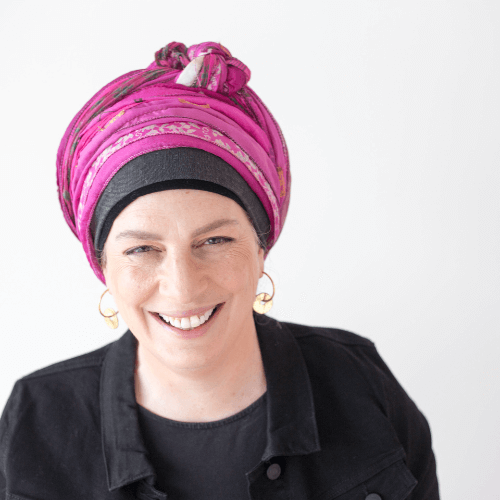
The essence of integrity is this: being clear on your own values and beliefs, and living inside them.
When I show up in integrity, I can create healthy boundaries that keep me safe and protect my energy. I can be fully present in the relationships that nourish me – and step away from the ones that don’t. I can be whole and true, clear and confident. It’s such a relief. When you’re in integrity, you’re able to approach any situation armed with a clear, strong core of you-ness. You can always make decisions in alignment with your vision of dignity and decency. Which might not result in you living the life you dreamed of having (because: life.) But it might result in you becoming the person you dreamed of being.
Integrity is the foundation of everything you do and everything you are. And you, clear and confident, is exactly the light we all need right now.
Be meticulous in your words: say what you mean and mean what you say. Be reliable: follow through on your commitments. Take radical responsibility for your actions. Be respectful of other people, even when you disagree with them. Create healthy boundaries. And this: get to know and love yourself, so you can show up calmly, easily, and with a clear mind, in any space, and with any person, in integrity.
68. Shani Sror Adiver
Business Project Manager –Invest in Yourself, IBI Investment House Ltd
Empowerment

Feeling confident, powerful, and capable are all essential pieces to growing and learning as a person.
You are much more likely to be successful at something if you believe you can do it or make others feel confident and powerful.
Empowering others is my goal and my purpose.
I have always been attracted to powerful people, fascinated by their impact on others.
By providing others with knowledge, tools, and inspiration, I do my best to empower and lead toward financial independence.
I thrive by empowering others in my personal and business relationships and try to surround myself with like-minded people.
Financial independence is key to freedom of choice and well-being for us women. Many of us got used to working hard and saving money, nowadays we realize that investments and financial growth are part of any woman’s right and duty.
69. Dr. Yofi Tirosh
Vice Dean at the Tel Aviv University Faculty of Law and Award-winning Activist
Synergy
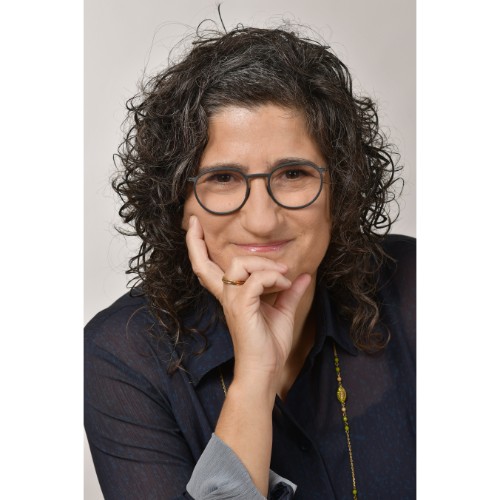
Cooperation between two or more people, organizations, powers, or substances can produce something bigger and better than the sum of its parts. This is synergy.
In the first months of 2023, a civil protest on a scale never seen before in Israel has awoken. This text is written amid rapidly unfolding events. Uncertainty still looms large. But one good thing can already be said about the current crisis: It has created unprecedented connectivity within and between different facets of Israeli society. Dictatorships do not like citizens who cooperate. They prefer them isolated, divided, and weak. In legal academia, for example, hierarchies have flattened, and we work together with incredible communication and connectivity.
Create alliances. Focus on common goals and not on differences. Exchange contact information. Reach out. Discuss. Act together. Collaborate. Act effectively. This is synergy.
70. Prof. Shalva Weil
Senior Researcher, Hebrew University of Jerusalem
Cultural Sensitivity
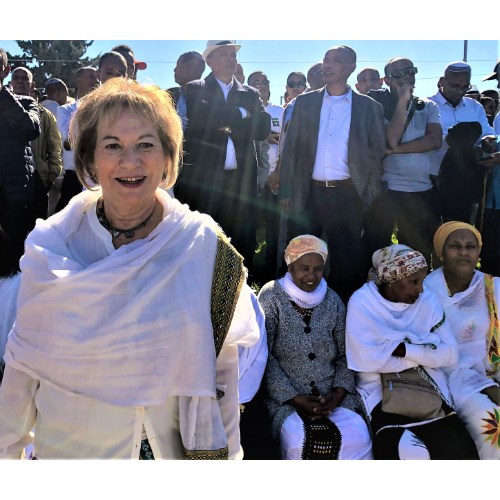
Cultural Sensitivity is the consideration of the Other. It means taking into account other cultures, and the acceptance of other cultural identities. This is why I became a social/cultural anthropologist.
Cultural sensitivity aims at combatting ethnocentrism, by which we examine issues through our own Western prisms. Even in a society like Israel, we have different minority groups, indigenous cultures, and immigrants from non-Western societies, like the Ethiopian Jews or Indian Jews I have studied.
Cultural Sensitivity means the acknowledgement of diversity, which is finally receiving some recognition. It matters because we can understand the ways people act as they do.
In the work I do on femicide, some of the murders of women are based on cultural patterns. If we can understand the cultural issues behind some of these femicides, we can hope to prevent others.
We should welcome immigrants by showing them that we care about their cultures. If they wish to abandon certain traits, they can, but we don’t have to force them to change names, dress or rituals. We should receive members of different cultures as they are, and make them feel at home.
71. Keren Weizman
Marketing Executive
Faith

Faith is a strong belief or trust in something, usually without requiring proof or evidence. It can refer to religious faith, where individuals have a belief in a higher power, but it can also refer to trust and confidence in a person or an idea.
Faith plays an important role in our society, providing a sense of community and shared purpose. It brings people together around shared beliefs, values and traditions, creating a sense of belonging and connection.
In a country like ours which embodies many religions, segments and preferences, it’s crucial for us to accept one each other’s faith. In Hebrew we have a sentence which describes it best: ‘Each one shall live by his own faith’. Promoting a culture of tolerance and respect for diverse beliefs and perspectives will create an environment of understanding and promote a common purpose as a nation.
72. Shari Wright Pilo
Digital Marketing Consultant | Lecturer
Sharing

The act of giving away material things, knowledge, skills, experiences, or time to others. It is a fundamental value that fosters stronger relationships, instills trust, and creates a sense of community.
Sharing is important for society because it promotes a magnanimous spirit that is mutually beneficial for all parties involved. It builds a global community where we can learn from each other, recognize the needs of those around us, and demonstrate our eagerness to offer a helping hand. When we share our knowledge and expertise, we empower others to succeed and achieve their goals. By equipping others with the requisite tools for success, we can make the world a more compassionate and caring place for all.
The words of Maimonides, “Give a man a fish and you feed him for a day; teach a man to fish, and you feed him for a lifetime,” ring true when it comes to the importance of sharing.
To see more sharing in society, we can create more opportunities for people to connect and share their expertise. This can be achieved through volunteering, creating communities, or simply making time to listen and connect with others.
73. Oshra Yosef-Friedman
Deputy Director-General, The Authority for the Advancement of the Status of Women
Respect
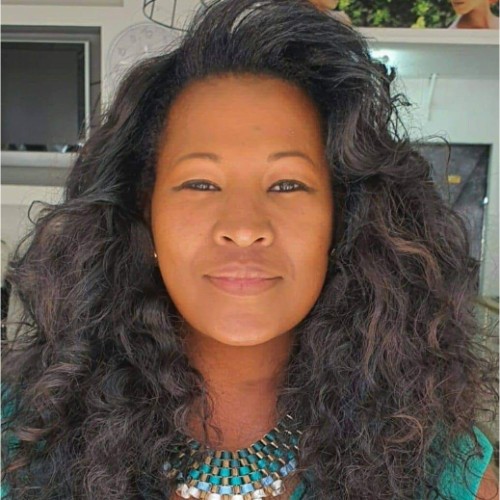
Respect is the recognition and protection of human dignity. The most basic rights are the right to life and dignity. The right to dignity states that every person has the right not be subjected to degradation, disrespect, or abuse, the right to privacy and the right to not have false information published about them.
Respect involves acknowledging that every person has self-worth and should be treated as an end in themselves, not as a means to an end.
Human dignity is a central value to Jewish culture, humanistic tradition, and is one of the fundamental values of democracy.
Humans are autonomous beings. When human autonomy is violated and a person is treated as a means to an end, human dignity is violated.
Human dignity has no price and should never be sacrificed for the sake of another value.
I grew up with the idea that everything begins with respect. Respect for others begins with respecting ourselves for who we are. When we show respect for each other, it can create a foundation for respectful, moral, patient and tolerant conversations. Respect allows us to show regard and consideration for others, even when they hold opinions that are different than our own.
74. Hila Zaguri
Employer Branding and Career Consultant, Lecturer, Connecting HR Owner
Knowledge

Knowledge is power; it is facts, theories, principles, skills and abilities that are crucial for job security.
No one has any idea what the future world of work will look like, but there is already an overwhelming consensus that artificial intelligence will change the way we work and operate in the world. In the midst of all this, we are also dealing with an ever-changing political landscape that is causing transformation in the Israeli job market.
In my experience, the most significant skill to thrive in a constantly evolving work environment is the continuous acquisition of knowledge.
In today’s world, there are so many ways to learn, from podcasts to online course to articles by international experts. If you are debating what you should study, I suggest pursuing something that genuinely interests you. It is the best way to gain knowledge and cultivate a lifelong learning mindset that is essential for staying relevant in the ever-evolving job market.
75. Efrat Zocher Arica
Product manager in renewable energy and director of a community center in Jerusalem
Tolerance
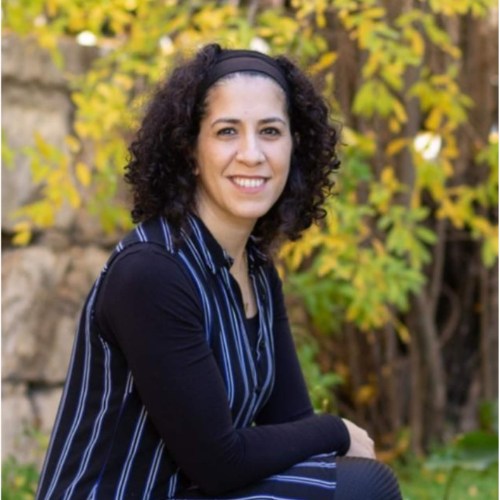
We tend to define tolerance for individuals who are “different from us,” but the truth is, every person is different in their own way.
There are currently contentious debates on various topics that stem from different worldviews. Embracing tolerance will allow us to speak to each other calmly and in a way that allows for discussion and acceptance of others different than us.
Various groups in our society are currently asserting their rights and pushing for their voices to be heard. This can be a challenging and uncomfortable process. The conflict is real and complex and the only way that we’ll succeed in finding solutions is by taking a step back “breathing deeply” and actively listening.
To promote tolerance, we must first see it as fundamental to the discussion. This involves talking about it with other people, accepting that society is composed of individuals with varying beliefs, and contemplating how we can coexist in harmony despite our differences.
Share on:
View Former Years
- Celebrating Yom Haatzmaut with 74 Excellent Pieces of Life Advice
- Yom Haatzmaut 2021: 73 Tips to Help You Get Back on Track
- Celebrating Yom Haatzmaut with 72 Life and Business Lessons from Successful Israeli Women
- Israel is 70: Women’s Greatest Achievements
- 69 Things Israel’s Successful Women Love About Their Country
